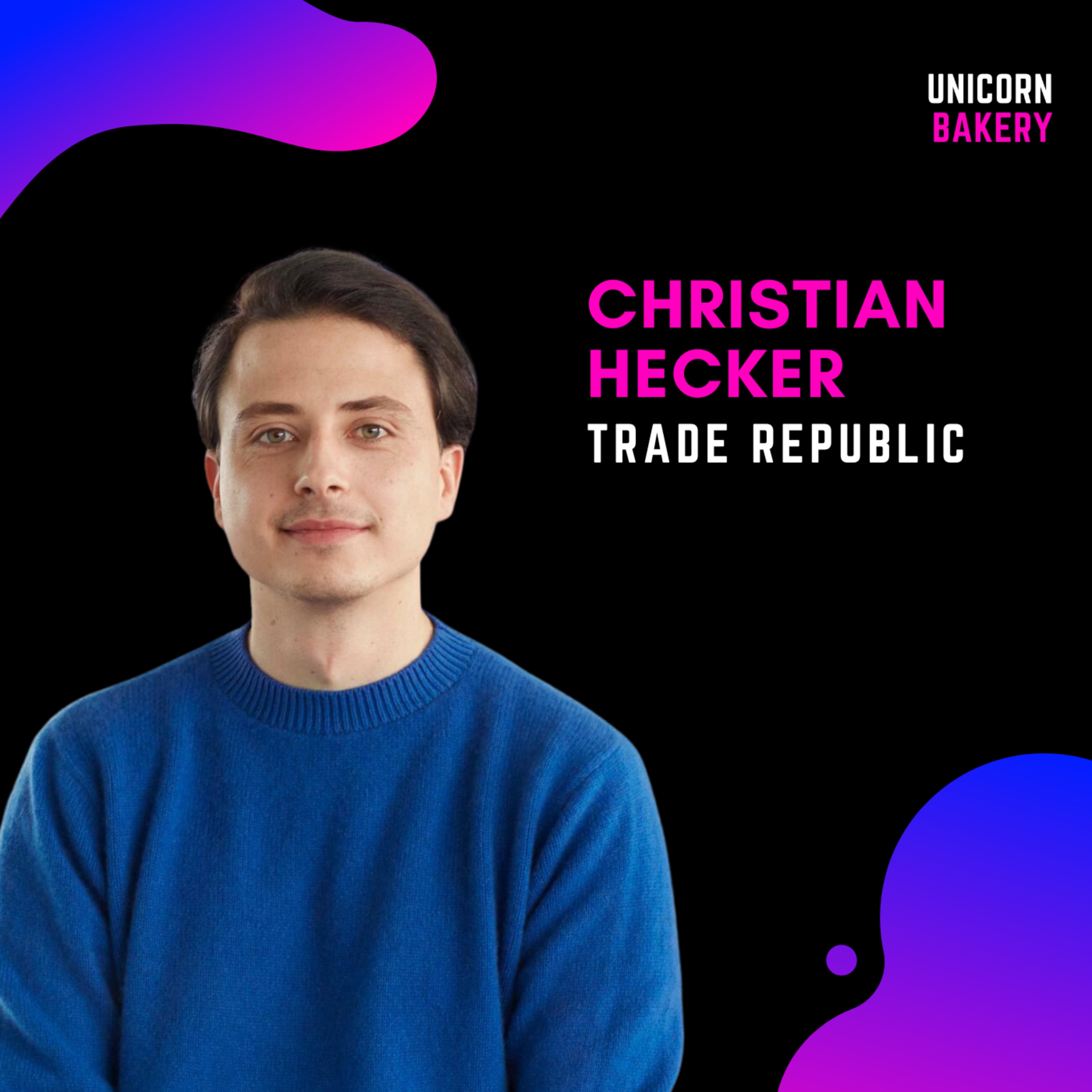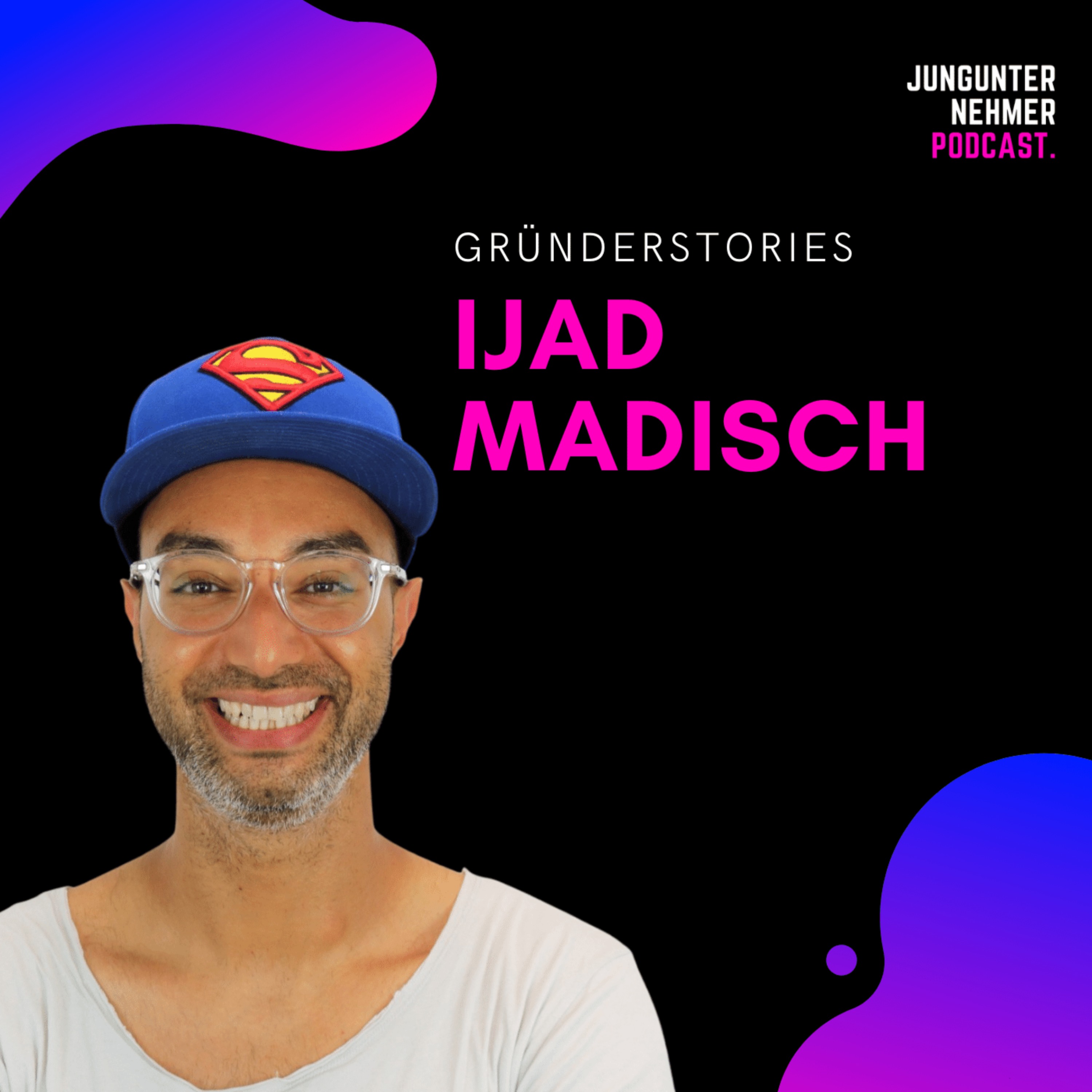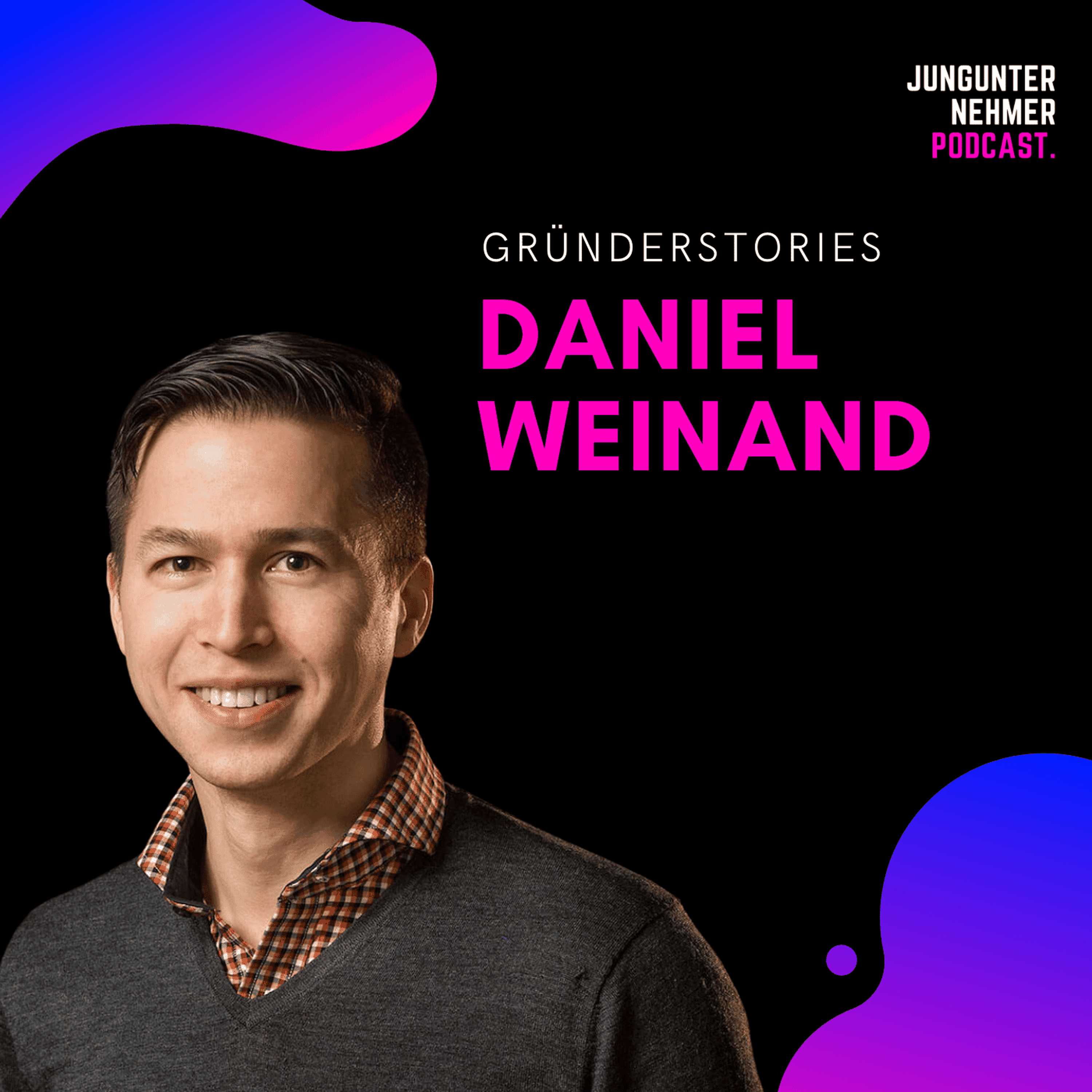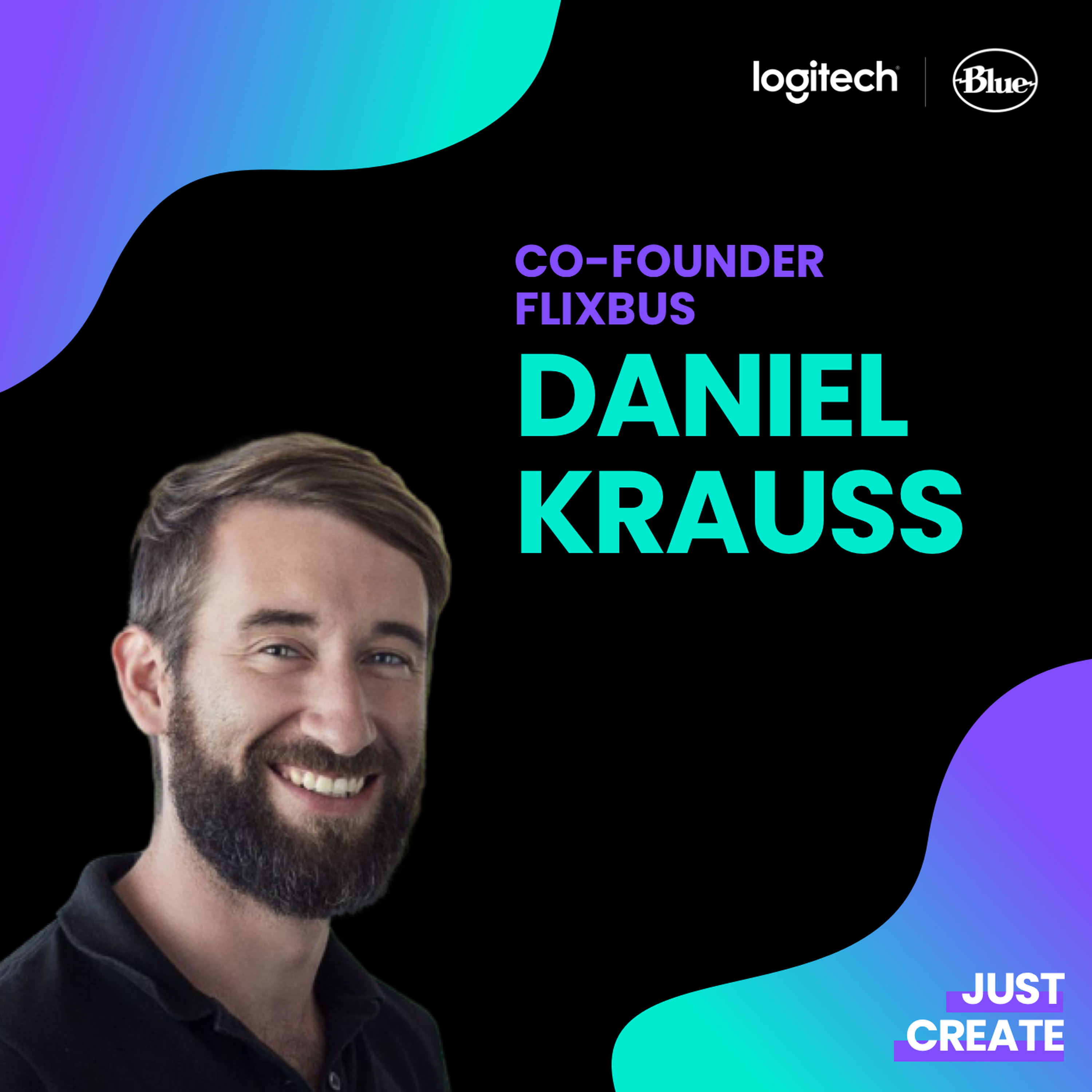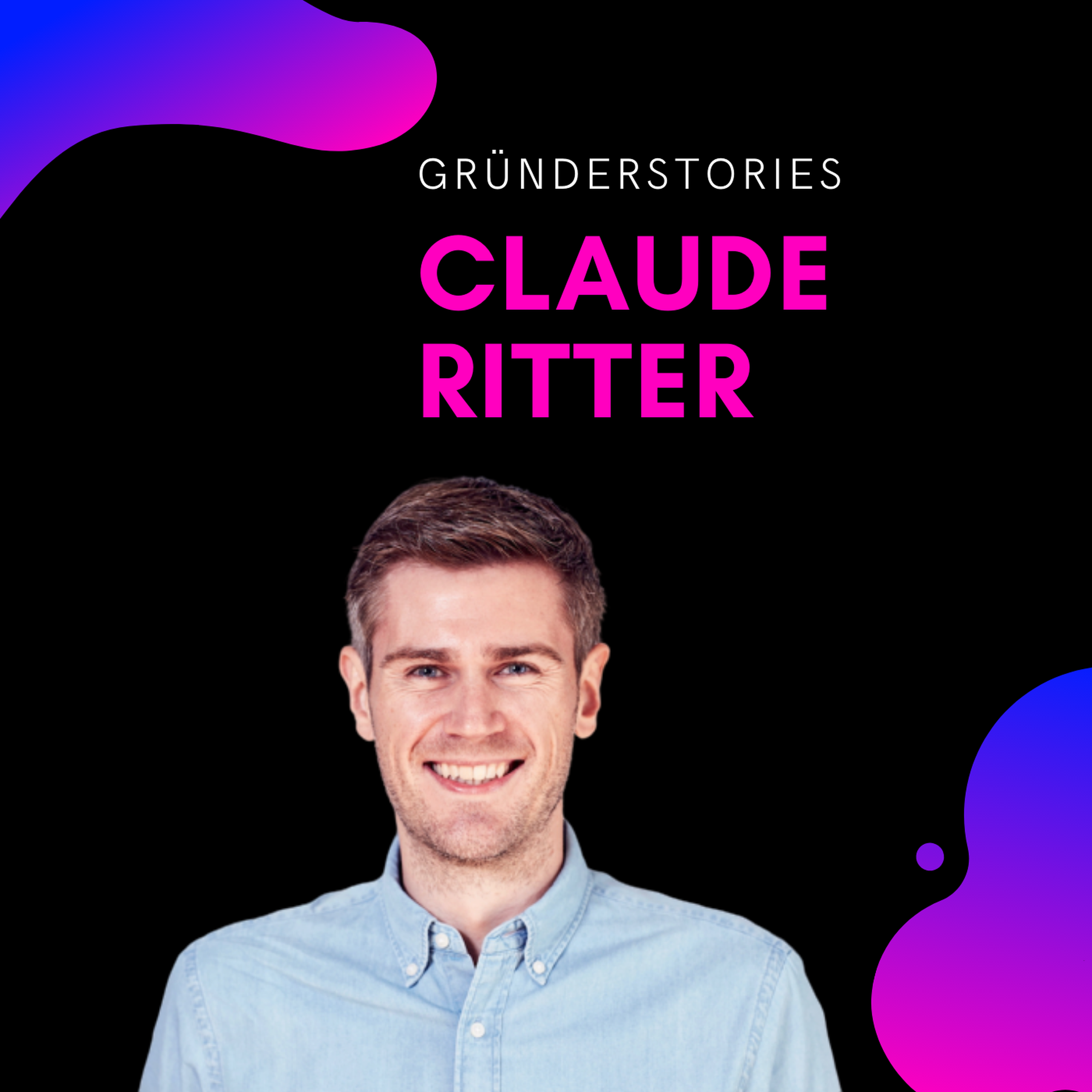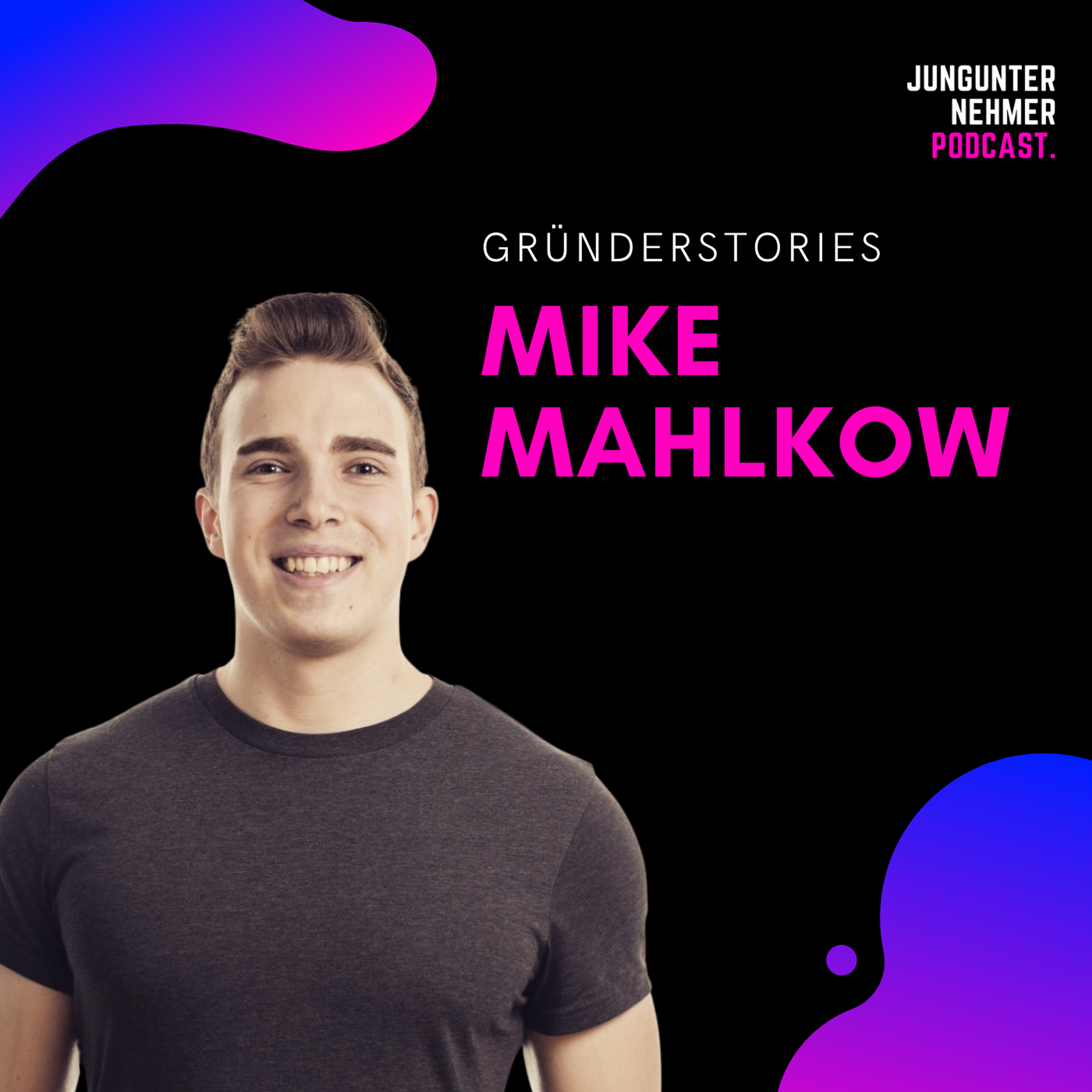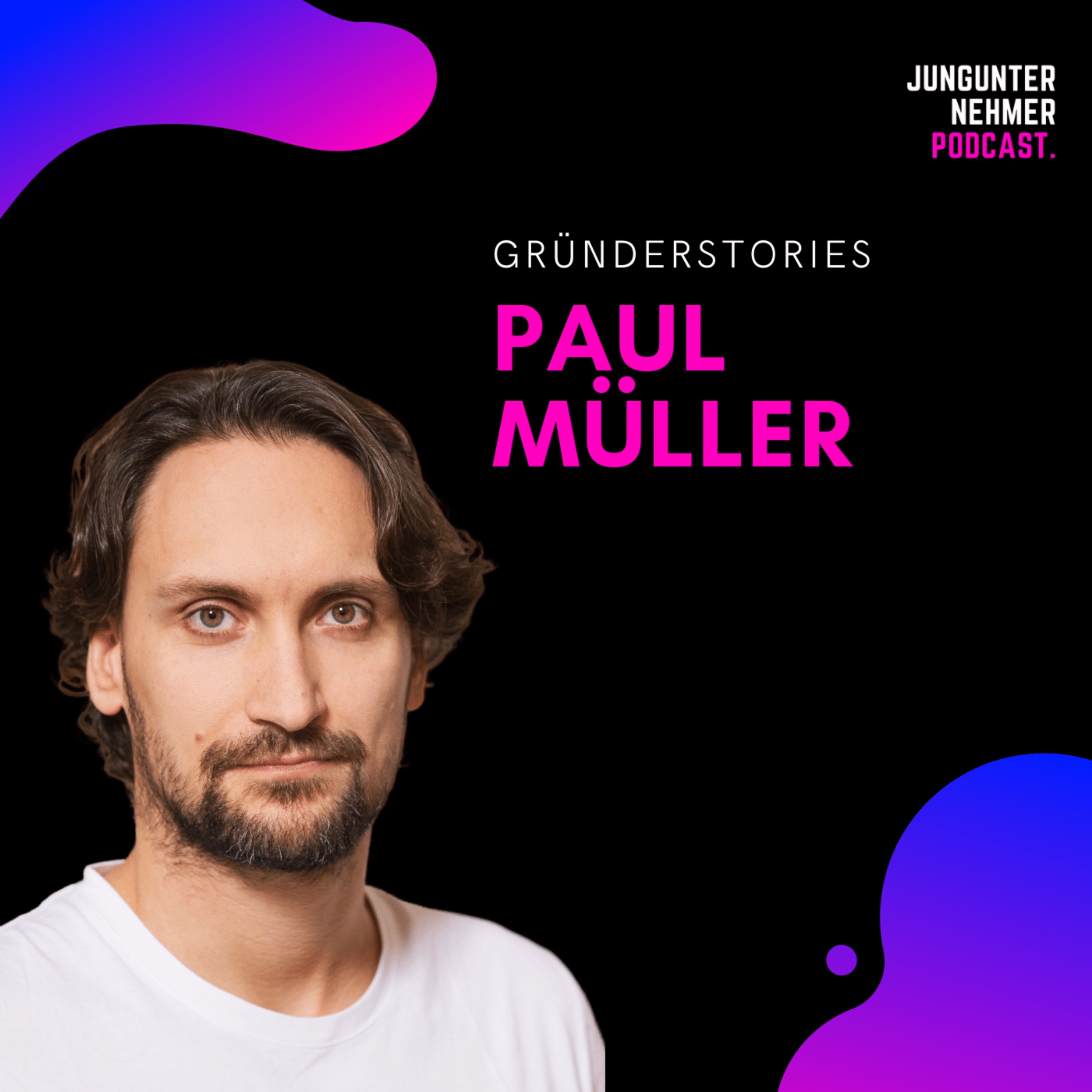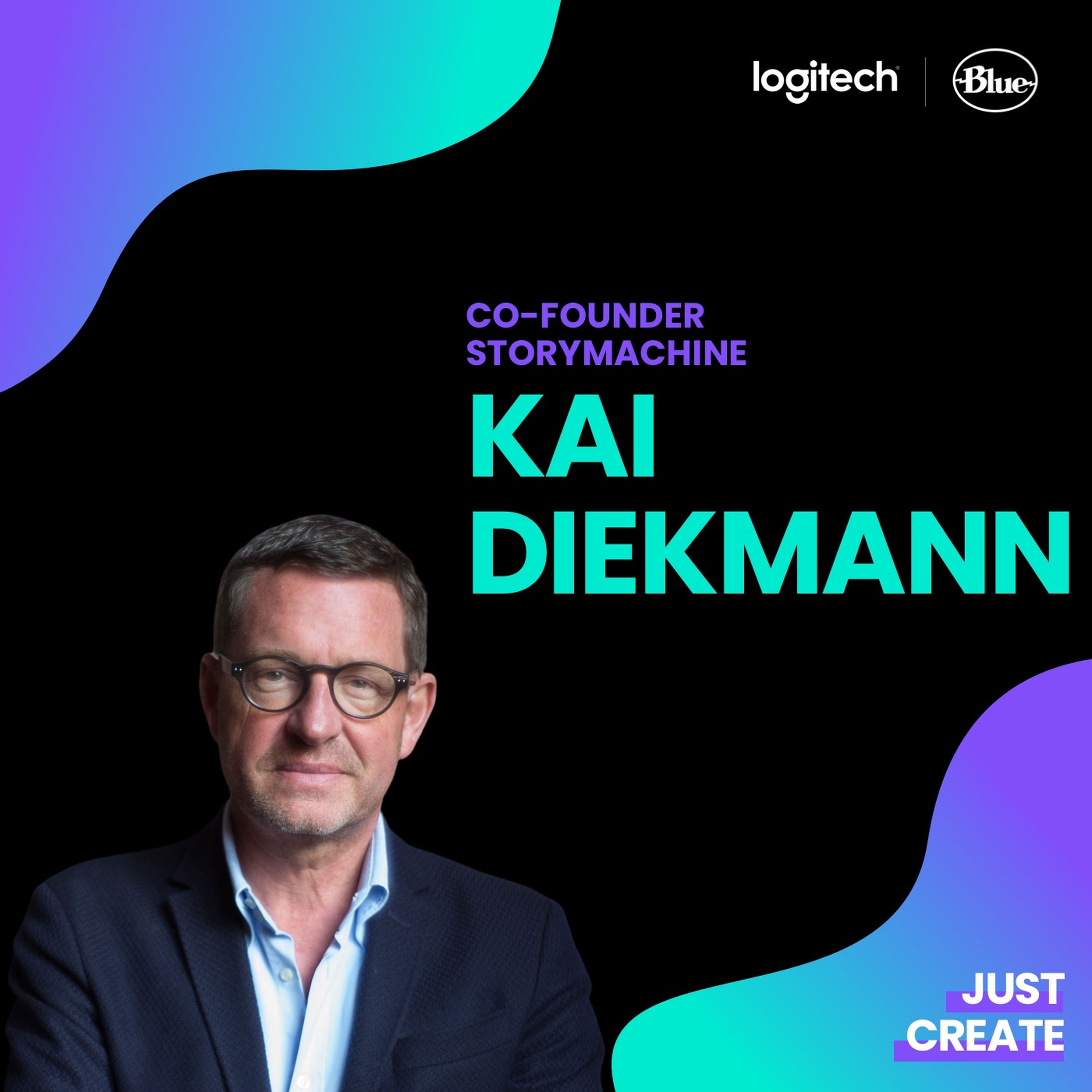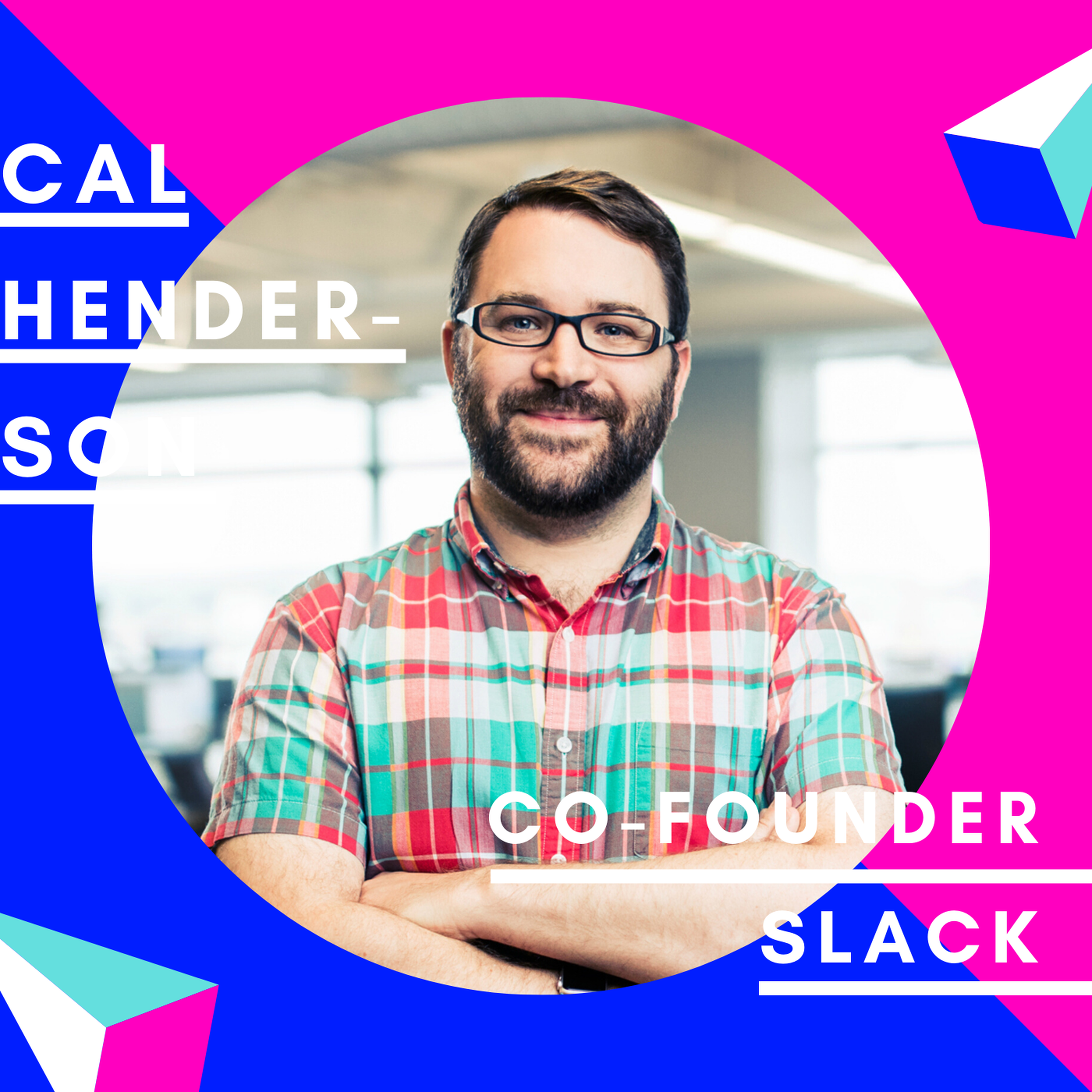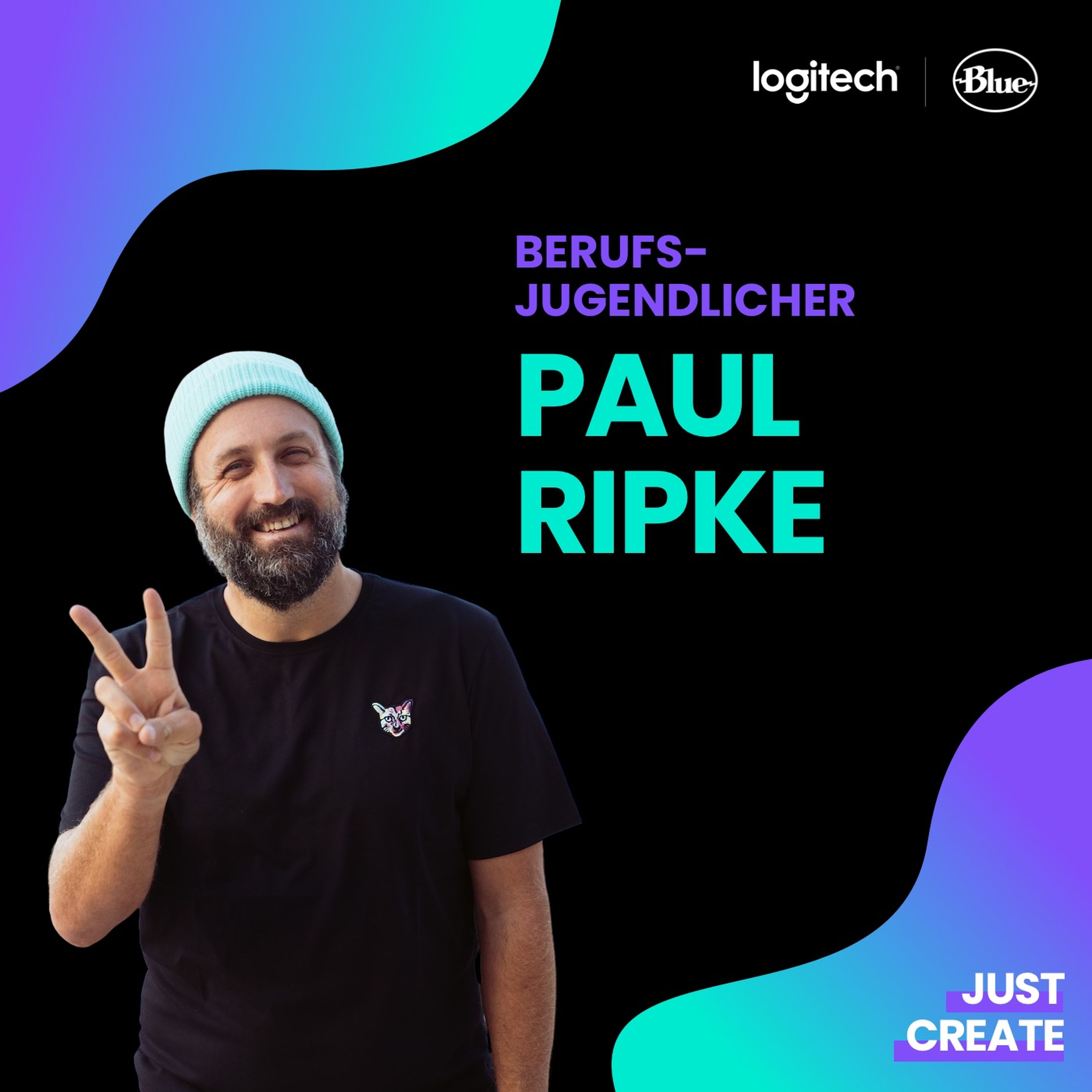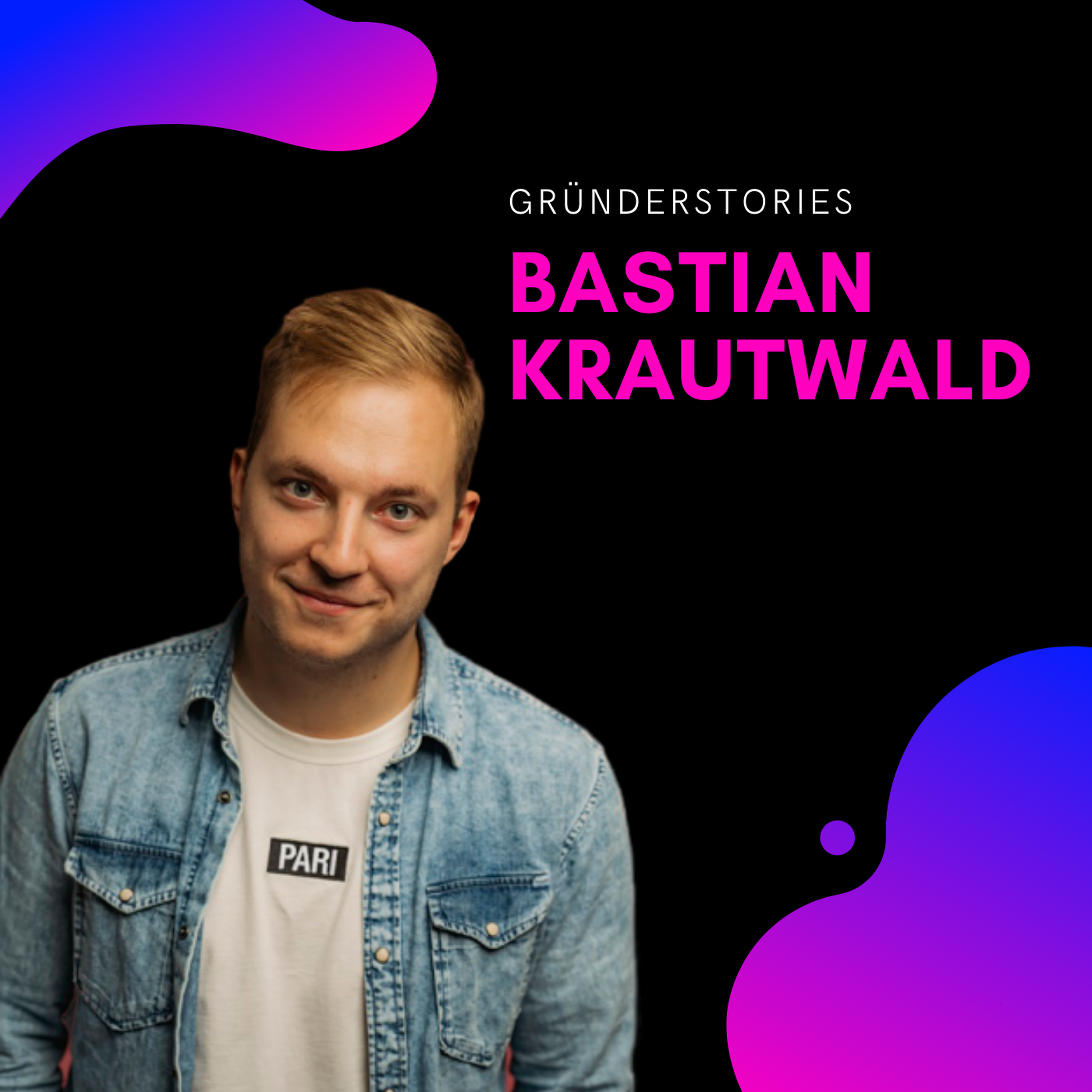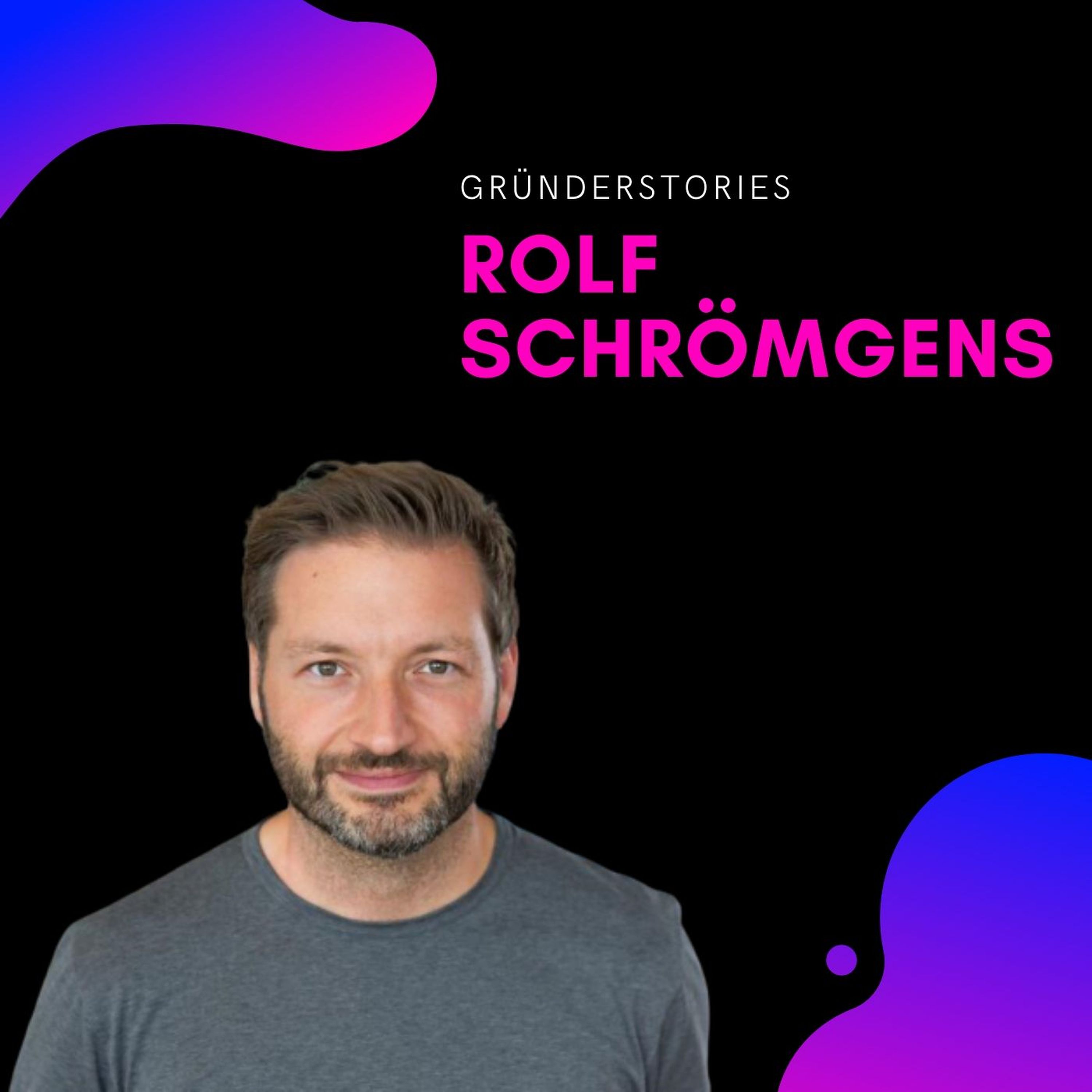How does it feel to make a 100 million dollars with an exit? with GitHub and Gitbutler Founder Scott Chacon
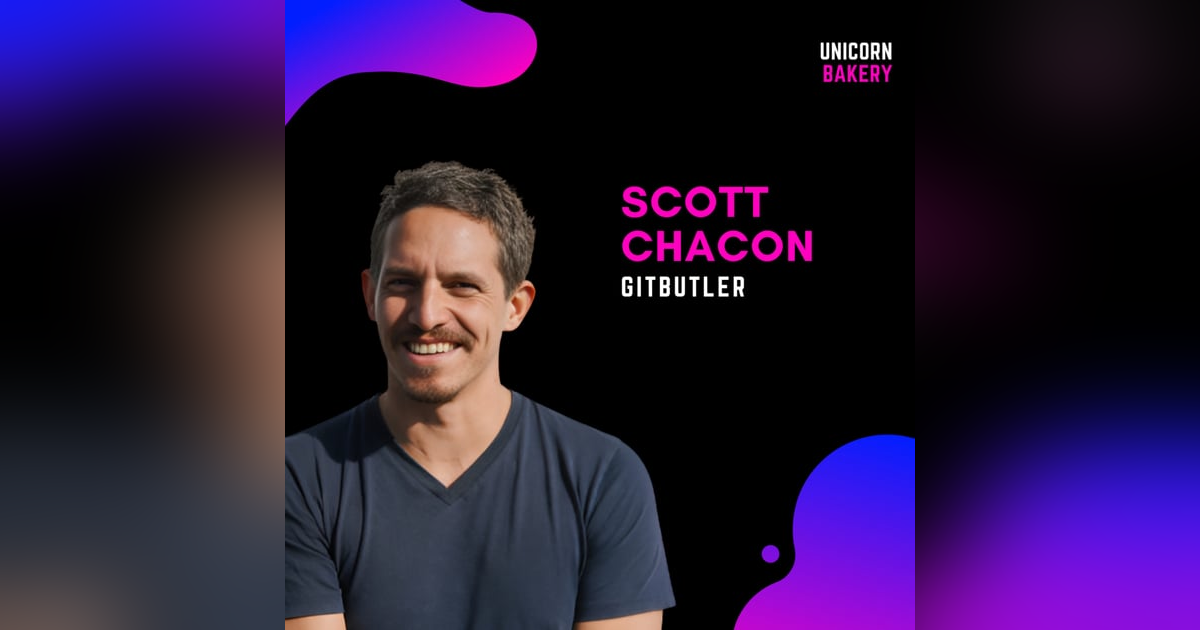
Scott Chachon ist einer der Mitgründer von GitHub, einer Entwicklerplattform, die für ca. 7,5 Milliarden Dollar an Microsoft verkauft wurde.
Wir sprechen über den Moment, als er vom Verkauf an Microsoft erfahren hat, wie viel Geld er mit dem Verkauf verdient hat und ob es ihn glücklich gemacht hat.
Inzwischen gründet er sein drittes Startup Gitbutler, nachdem er 12 Millionen seines eigenen Geldes in Chatterbug investiert und nun entschlossen hat, die Firma ohne Investment profitabel wachsen zu lassen.
Wir sprechen über das Gründen in Deutschland und Europa im Gegensatz zu den USA und Scott erklärt, warum er nun zum zweiten Mal in Deutschland gründet.
Was du lernst:
- Meilenstein Exit: Wie erstrebenswert ist der Exit als Ziel wirklich?
- Kundenbindung: Wie schwer ist es, Kunden zu binden und welche Möglichkeiten, wie beispielsweise erlebnisorientierte Ansätze, gibt es?
- Teamzusammensetzung: Was macht ein hoch performantes Team aus?
- Made in Germany: Welche Aspekte sprechen für und gegen eine Gründung in Deutschland vs. in den USA?
Looking for 100.000€ in Cloud Credits, then apply for the OVHcloud Startup Program: https://startup.ovhcloud.com
ALLES ZU UNICORN BAKERY:
Scott Chacon
LinkedIn: https://www.linkedin.com/in/schacon
Gitbutler: https://gitbutler.com/
Merge: https://merge.berlin
Unicorn Bakery Whatsapp Broadcast:
Hier erfährst du alles, was du als Gründer wissen musst: https://drp.li/jrq5S
Unser WhatsApp Broadcast hält dich mit Einblicken in die Szene, News und Top-Inhalten auf dem Laufenden.
Marker:
(00:00:00) What changes when you finally get the 100 million dollar exit? ?
(00:06:20) Did you experience an exit-depression?
(00:11:03) 12 million personal investment in Chatterbug?
(00:15:04) What is your advice for founders to get to the "zero-to-one-effect"?
(00:23:01) Gitbutler: Product & Vision
(00:29:04) How did you build your third venture with all your experience?
(00:32:55) What does it take to make a developer tool successful?
(00:36:11) Was your product ready for a lot of attention when you got thousands of signups?
(00:39:03) What do non-technical-founders forget about that makes it harder for tech people to succeed in the company?
(00:42:26) Why is building from Germany great in some parts?
(00:55:44) Investors vs. Bootstrapping: What are your thoughts?
(01:00:14) How did you plan your runway?
(01:03:44) The Merge: The developers conference
Hosted on Acast. See acast.com/privacy for more information.
(00:00:00) Germany doesn't like people to get rich. (00:00:02) It's hard to set up something where your employees can get rich, right? (00:00:06) Like a GitHub doesn't happen here. (00:00:08) Like GitHub, like I said before, I think we had at least a hundred people who became millionaires when GitHub sold. (00:00:13) I would challenge you to find a German company where that happened, because it's so, most German companies don't even give stock options to them. (00:00:20) There's no ESOP programs because there's so much dry taxation, right? (00:00:23) Like if you give your employees stock options, you're essentially bankrupting them in most cases. (00:00:28) Welcome to a new episode of the Unicorn Bakery. (00:00:31) My name is Fabian Tausch and today we will have a look at the success recipe of Scott Chacon. (00:00:37) Scott is one of the co-founders of GitHub. (00:00:40) As many of you might know, sold to Microsoft, I'm not sure about the year. (00:00:45) I think 2018 for seven and a half billion. (00:00:48) I'm not sure if it's an official number or if it's like, okay. (00:00:51) And it was, the funny part was it was a bootstrap for a long time. (00:00:56) And then at some point got some growth investment. (00:00:58) So you found the founders earned a lot of the shares. (00:01:02) I think it was pretty much 75% of the company, which was like, sounded crazy and still is if we compare it to what kind of exits are happening in that dimension. (00:01:11) By then you already lived in Berlin, started and built Chatterbuck, a company that was for language learning with tutoring, digital tutoring, and you shut it down by now. (00:01:23) You're now building GitButler. (00:01:25) We will talk about that in a second. (00:01:27) Still from Berlin, which is I think also very interesting and a topic that I would love to cover because so many, so many German founders aspire to found their company in the U S and then there are people who are coming from the U S to Germany and think, okay, maybe here's a good place to build. (00:01:42) So we'd love to talk about this. (00:01:44) And then we will find a few more topics on the company building side, like it's the third company. (00:01:50) One was mostly bootstrapped until the growth funding hit the bank account. (00:01:55) Then the next one was a first venture funded and self-funded after the GitHub exit, you shut it down. (00:02:00) Now the third one, how do you do it right now? (00:02:03) We will talk about this and then yeah, so much to talk about. (00:02:07) Great to have you here again for everyone who doesn't know, there's at least one older episode with Scott from a few days after the GitHub exit, I think a week or two after, so I'll link that down below. (00:02:20) Scott, welcome to the Unicorn Bakery again. (00:02:21) Yeah. (00:02:22) Thank you for having me back. (00:02:23) What? (00:02:24) Five years ago or something. (00:02:25) It was a while ago. (00:02:26) That's a five and a half years. (00:02:27) So it was an early episode for you, right? (00:02:30) Yeah, I started end of 2016. (00:02:33) So it was like really like one and a half years in or something. (00:02:36) So quite early, one and a half, two years in. (00:02:40) And then we did a fireside chat in the factory, like in front of 150 people or something, which was also quite interesting. (00:02:47) So we had a few occasions, but we haven't talked in a while, like publicly here. (00:02:52) So I'm happy to have you back. (00:02:54) Big question, I think for everybody, every founder out there who is building a company, and of course, all of us want to solve problems. (00:03:02) But in the end, it's also something that we have in mind to, at some point, maybe be in a financial position because of an like that, that gives us independence and because of an exit event or what changes when at some point you look in the bank and you're like, okay, guess I somehow made it. (00:03:21) Yeah. (00:03:22) I mean, I think it depends on, for everybody kind of what that, that end amount is, for me, I think I ended up, you did like a percentage, I actually don't know what percentage the founders had when Microsoft bought, but like you said, I had left and, and they, I just kind of got a call one day from the corporate lawyer there, Julio, who I know fairly well saying, hey, Microsoft, you know, Satya is going to announce on Monday. (00:03:46) Are you going to be okay with that? (00:03:48) Or, you know, is there going to be problems or something? (00:03:49) Cause I hadn't been around in a while. (00:03:51) And then he, you know, told me the, the price, which, you know, it's like in lockup for a long time and you can't sell shares for a while, but for me, it ended up being a little over a hundred million dollars, you know, if it's a million dollars, then that's one thing. (00:04:04) Then, you know, I, I know people there's, I mean, GitHub made probably over a hundred people, millionaires in one way or another, but you know, some people, it's still not enough, like they, it's not fuck you money, right? (00:04:15) Am I allowed to swear on this actually? (00:04:16) Yeah, it's fine. (00:04:17) It's fine. (00:04:17) Uh, you know, that's, that's, that's, it's not really that for me, it really was. (00:04:22) Um, I also, you know, I went through a divorce later, so there went half of that, but like in the end, I, it's still, you, you, you're over under the point of like, do you really need to work again? (00:04:32) Right. (00:04:32) And obviously I, I, I was lucky enough to be in the thing where I, I really don't need to work again. (00:04:37) But my co-founders all went through that as well. (00:04:39) And it's kind of fascinating to see how, how everybody reacts to that, right? (00:04:43) Like I've been working in startups pretty much every day since then. (00:04:47) Um, like just went from one to the other, um, even, even these last two, like there wasn't really much more than a month really that I, I haven't been employed somewhere for a long time. (00:04:58) Um, and I haven't, I've never made a, I haven't made a salary in eight years, right? (00:05:01) Like it doesn't, it doesn't really make any sense. (00:05:03) Um, but I think what, what is interesting is what comes out when people don't need to work, what do they do, right? (00:05:09) Because most people still work. (00:05:11) They, they just kind of choose what they can work on. (00:05:13) For me, it happened to be basically the same thing that I was doing, you know, before, um, except I, I can really choose what I'm working on at a day to day basis. (00:05:23) Um, and I, I, I find that I don't think there's going to be a, I'll die, you know, uh, you know, hopefully I'll be nice and old, but I'll probably still be working on a startup of some sort at that point when I'm 90 something, hopefully. (00:05:34) One of my other co-founders decided to, he took a bunch of time off and now he's racing cars professionally, um, you know, in these sort of 24 hour and 12 hour, you know, Porsche circuits and another one started an indie game company. (00:05:46) And like, you know, it's, it's, it's, it just depends on what really drives you and what you really love to do. (00:05:51) And when, you know, everything else is taken away, you can't, you know, go to a desert Island or whatever, or, you know, some like live on a yacht or whatever. (00:05:57) Like that's, I think that's boring to everybody after a few weeks. (00:06:01) Like, it's just not, it's not something that drives anybody. (00:06:04) Um, so whatever it is that you're doing now, I think a lot of people, they're working really hard and, you know, it's kind of funny to realize that, that once you make it, you're probably just going to continue doing that forever anyways. (00:06:16) Right? (00:06:16) Like, if that's, that's really what you love doing and it's really what I love doing. (00:06:19) So I talked to a few founders who've been on the podcast, but some are more open about it. (00:06:24) Others aren't, but they were like, yeah, I wanted to have this exit. (00:06:27) So there are different kinds of people. (00:06:29) Some really work towards this exit. (00:06:31) And it's like, yeah, that's the goal that I have in mind. (00:06:32) And others, it's like, okay. (00:06:34) Um, it's a by-product as you said, you just got a call. (00:06:37) Hey, on Monday, there's, there's the announcement. (00:06:39) I think you were not like waiting every day for, to get this call because you had, you had to move on because it's hard to plan with such an event. (00:06:46) But I talked to a few and they were like, yeah, after that I somehow fell into a hole because I was like, okay, but what now? (00:06:53) Did you experience this as well? (00:06:54) A little bit. (00:06:55) Yeah. (00:06:55) I mean, I think, I think again, it depends on the amount, like what you come out with, because part of it is, and I, and I do see people struggle with this of, of is it enough doing what I'm doing? (00:07:05) Right. (00:07:06) If I just start smaller companies and try to make them big because it's a fun thing for me to do, um, do I have a larger social responsibility, right. (00:07:14) With, with tens of millions of dollars, like, like, and so actually the first thing that I did was, was I put 30% of that into a foundation and like a charitable foundation and, you know, tried to do that. (00:07:25) My, my ex kind of took that as part of the divorce, but like the nice thing is that, you know, I know it's still being run. (00:07:31) There's still good being done with that. (00:07:33) Like, but, but I struggled with not caring too much about that. (00:07:37) Right. (00:07:37) And even though feeling like I should probably care about that. (00:07:41) Um, but it wasn't, it wasn't really what was getting me up in the morning. (00:07:43) And, and so you do have a bit of a, of a social, you know, conscience, I think about that of like, am I doing enough with, with what, and I think you can see this with, you know, I'm, I'm one level, but there's, there's much, much higher level if you're looking at how Bill Gates is spending his time or something. (00:07:58) Right. (00:07:58) Like, I think a lot of people get into that where it's like, they want to give it away. (00:08:01) They don't want to, you don't want to die with a bunch of money. (00:08:03) Right. (00:08:03) Like you want to try to do some good and you want to help most people, not everybody, but, but there definitely is a pressure on, on you of saying like, am I doing enough? (00:08:13) Right. (00:08:13) Like I, I've been given, I've been lucky. (00:08:15) I've been blessed. (00:08:16) Right. (00:08:17) Like I need to pay this forward somehow. (00:08:19) I need to, I need to not make the world a worse place. (00:08:22) Hopefully. (00:08:22) I think a lot of people do that if they, if that's the first thing, if you're born with it, maybe that's a different thing. (00:08:27) You feel like every, you know, things are owed to you, but, but yeah, I, I definitely think that that's, that's a pressure, but like, you know, it takes a couple of years and then you figure out what your rhythm is and, and, and, uh, or, you know, you give it all away or you lose it all or whatever you keep starting, starting startups that don't work or something like that. (00:08:44) But like, I, I, I think, you know, it really depends on, on the person and kind of what, what comes out of that. (00:08:50) I, I'm in a very happy place right now of kind of finding a nice equilibrium of, you know, I don't think that my life day to day is really that much different than, than it was before any of this. (00:09:00) Right. (00:09:00) Um, in the early days of GitHub, really, except I don't really have to worry about flying business class or, you know, taking a vacation in a nice place or something like that, but really the day to day thing is not, is not that much different than my life has been for the last 20 years. (00:09:15) It's, it's, it's more, there are fewer things I just really have to care about, right. (00:09:19) Or, or try to budget for very specifically, but, but yeah, it, it, it balances out at some point to kind of how you just generally want to live your life. (00:09:26) Right. (00:09:27) What would you say is the best part about looking in your bank account being like, okay, there's enough? (00:09:31) Uh, it's that I almost never do it. (00:09:34) Right. (00:09:34) I, I, I, you know, like I said, like, like I go on a vacation and I don't really care what I'm spending necessarily, but I still, I go for a week, right. (00:09:43) And, and have a nice time and come back and sign whatever. (00:09:47) And like, it's just, it doesn't matter. (00:09:48) Right. (00:09:48) Like I'm, I'm not, I'm not worrying about things. (00:09:50) And, and that's really the biggest thing. (00:09:52) Actually, when it first happened, I was really worrying about Chatterbug because it wasn't working out. (00:09:56) And, you know, I, I had to figure out like when, when Microsoft sold and I actually got, got this funding, I was, my first thought was, I don't have to shut the company down, right? (00:10:06) Like I can, I can give it another breath of air. (00:10:08) I can give it a little bit more time, even though really nobody will probably invest in this at this point, um, because we're not, we're not showing product market fit, but like, it's still something I care about and I love, and I want to see it work. (00:10:18) And so I want to give it another, another piece of life, right. (00:10:21) And see if I can, if I can get it to the next stage where it can, and it can change people's lives and help people learn languages and stuff. (00:10:27) And that was, that was, and I don't, you know, I don't have to lay off everybody that I enjoy working with every day. (00:10:32) And so that was really the first thing that went through my mind. (00:10:34) It wasn't really anything personal. (00:10:36) It was more, I can, I can keep, I can keep investing in this thing that I love. (00:10:40) So, yeah, I mean, I think that's what was important to me. (00:10:43) That's what still drives me is, is that more than, I don't know. (00:10:47) I mean, what do you really want out of life, right? (00:10:49) Like I'm hap, I'm happily married. (00:10:51) I have, I have kids that are very healthy and like past that. (00:10:54) It's, do you love what you're doing every day? (00:10:56) Like, do you love your work? (00:10:57) Do you love your passions, right? (00:10:59) Have a nice equilibrium where, you know, it's more about what I don't have to worry about. (00:11:03) Talking about Cheddar Buck and the moment when you decided, okay, I can put in more money so we don't have to shut it down, where a few years later now, Cheddar Buck is like not running at the same pace anymore. (00:11:16) I think you still run customer support as far as I know. (00:11:19) Yeah. (00:11:19) Yeah. (00:11:20) I mean, at some point we, you know, I was putting a lot of money on it, into it. (00:11:23) It was not becoming sustainable. (00:11:26) We couldn't really figure out how to pivot it, you know, again. (00:11:29) Right. (00:11:29) But we realized that the core business was essentially profitable if almost nobody was working on it. (00:11:34) And so we laid off most of, of the employees and, and, but all of the customers and all the tutors, the whole, the whole marketplace system still runs. (00:11:42) It just, and it runs by itself, right? (00:11:43) Like it's been very stable, brought in TJ, a guy that, that we worked with before to kind of run it as the new CEO. (00:11:50) And he's been, he's been trying to grow it very slowly. (00:11:52) Right. (00:11:53) But like, not in this VC way, but more of a, of a lifestyle business. (00:11:56) But like, you know, like I said, going back to like, what do I care about of this thing, I, I, I could have shut it down and just, so I didn't have to worry about it anymore, but we had, you know, hundreds of customers that were learning languages and hundreds of tutors that were making money off of it, and it seemed kind of selfish to do that just because I didn't want to spend time on it anymore. (00:12:13) Right. (00:12:14) Like it was, if it's just the two of them, it's, it's basically a profitable company at that point. (00:12:18) And so I didn't, I didn't want to kill it just to get it off the books. (00:12:21) I wanted to make sure that there's still years of people learning languages, if people still like doing that. (00:12:26) Right. (00:12:27) And so it survives and it runs and, and I think we still have very happy customers on it, but it's never, it's very difficult to see it as a rocket ship, right, or, or what path that was going to be. (00:12:36) And, uh, I think I, I think I spent somewhere around $12 million of my own money on that, that I'll, you know, I'm never going to get that back. (00:12:43) Right. (00:12:43) But, but I learned German. (00:12:46) I fell in love with a German woman. (00:12:47) I have a wonderful life in Germany now. (00:12:49) And so I got that, it changed my life. (00:12:51) I wouldn't say that I would say I would never do anything. (00:12:54) I wouldn't have done any of that differently. (00:12:56) Right. (00:12:56) It moved my life into a, into a new path that makes me very happy. (00:13:01) And you know, that's, that's the opportunity cost, I guess, right. (00:13:03) Of, of you have to, some things don't work no matter how badly you want. (00:13:07) Actually, it's really fascinating thing. (00:13:08) I talk about this with a lot of startup founders where they know they have a problem, right? (00:13:13) Like it's a very clearly a problem. (00:13:15) And sometimes it's just, you, you can try 10 different ways of trying to solve the problem and none of it create this product market fit that, that make it take hold and be able to take off. (00:13:24) And it's really sad to let go of it because you know, it's still a problem. (00:13:28) Right. (00:13:28) It's still this unsolved issue that somebody maybe could do if it, if you were smarter, right, or if you were a little bit better, if you'd tried something different, right. (00:13:35) And the longer you are with the company, I worked on Shatterbug for like six years and we tried so many different things and just, you just see them not catching for some reason. (00:13:45) And it's so difficult to figure out why that is sometimes. (00:13:47) And it's so frustrating to, to leave it behind and just be like, it's still not solved. (00:13:51) Right. (00:13:51) Like I still want to see that problem solved. (00:13:53) And so I wish I, I wish I had come out with that, with a better understanding of why something like this doesn't work. (00:13:58) And, and I think the longer that anybody's in this business, in this industry, that you just realize sometimes you don't hit that magic. (00:14:05) Right. (00:14:05) And nobody, nobody has the right, there's nobody in this world. (00:14:09) There's no, no Elon Musk or whoever that you can look up to that like they can take on anything and make it work. (00:14:14) Right. (00:14:14) Like they, sometimes you can do a couple of them. (00:14:17) Well, sometimes you're, but a lot of it is luck still. (00:14:20) Right. (00:14:20) There's, there's just, it's, it's actually kind of funny to, to give advice to people and be like, I don't even know if this is true, right? (00:14:26) Like this is what I experienced. (00:14:28) And hopefully you can take that and make it your own and make it something that works for you. (00:14:32) Right. (00:14:32) We got advice from people at Amazon and stuff at GitHub where we didn't use it exactly, but we learned something from it and we saw what resonated with us and we made it work in a, in a good way. (00:14:41) So I don't want to not give advice, but it's every one of these journeys is different, right? (00:14:46) And difficult in different ways. (00:14:48) And so I, but it's what keeps it fun, right? (00:14:51) I I'm curious how GitButler turns out because it's a new challenge and a new thing, and it's so far, it's already doing much, much better than, than Chatterbug really ever did from a, you know, market fit. (00:15:01) And so it's exciting in a different way. (00:15:04) What are your thoughts? (00:15:04) Because I know that you, for example, invested in a few or a bunch of startups through your own fund called Scene. (00:15:10) So therefore you talk to a lot of founders in an earlier stage, trying to bring stuff from zero to one, you're doing it again yourself. (00:15:16) What is your advice, thoughts, experience for founders currently trying to get to this like zero to one effect? (00:15:23) I mean, the best thing that I've, I've seen work over and over again is to, is to talk to customers as much as possible. (00:15:29) Like I, we did try to do that at Chatterbug, but I think sometimes we ignored the advice because it wasn't really what we wanted to build exactly. (00:15:37) Or we would only talk to super fans, right? (00:15:39) Like we would only talk to people who are using our product a lot, which it's nice, but you also want to talk to the people who immediately bail, right. (00:15:46) And figure out why that, why that is. (00:15:47) And I think we, we didn't pay enough attention to that, but I think all of the companies that we've invested in that I've seen that, that work really well, have very close relationships with their, with their customers, right. (00:15:56) And they would prefer to have a small group of customers that work really, really well and expand out of that slowly, right. (00:16:02) Then try to get a wide sort of broad range of types of customers and make sure that they, they can work everywhere. (00:16:09) And so a lot of the companies that we work with that I find really interesting and that I learned from, they work with a couple of people in Berlin and just make sure that they have something that works really well, right, before really selling it outside of that sphere. (00:16:21) And if I look back at how GitHub worked as well, I think that it was very similar, right, we were really only, we had like our first thousand repositories were all Ruby repositories. (00:16:30) Like we weren't, we weren't solving open source stuff for everybody in the world. (00:16:33) Right. (00:16:34) Like we were just, it's our friends and our group and our cohort that we would say, Hey, like, let's just make this work for Ruby, which is this small. (00:16:41) Comparatively, you know, we're not going to after Java or something. (00:16:44) Right. (00:16:44) And I think that making it work for that group and then expanding out was why that, that worked well. (00:16:48) So if I had one thing it's talk to customers. (00:16:51) I mean, this is what we're doing right now for GitButter really is, well, we're taking advantage of my background a little bit to get me on stages everywhere. (00:16:57) So I can, you know, as a GitHub co-founder, I can go give a keynote at lots and lots of conferences, right. (00:17:03) Um, cause they want to hear the GitHub person speak, but GitButter can sponsor it, drinks afterwards. (00:17:08) And then I get to talk to a bunch of software developers about what their workflows are like. (00:17:12) Right. (00:17:13) And I, and they don't care enough to not tell me that my ideas are stupid. (00:17:16) So, you know, if we pitch something and say, would you use a tool like this? (00:17:19) And they're like, eh, like you can see it on their faces. (00:17:22) Right. (00:17:22) And you can kind of do this elevator pitch a thousand times to software developers over beer, where they'll tell you what they're thinking. (00:17:29) Um, or you can see it. (00:17:30) Right. (00:17:30) And I think that really helped us pivot quickly on, we had a lot of different ideas before we landed on what we're doing, you know, focusing on now. (00:17:38) And what we're focusing on now works, but we kind of had a better idea that it would, because we talked to a hundred, a thousand people, right. (00:17:45) Like we just kept going out and having drinks with people and buying them beers and saying, okay, here's what we're working on. (00:17:50) Is that interesting? (00:17:50) And we could see if it's interesting or not at least. (00:17:52) Right. (00:17:53) And so, yeah, I think talking to customers for me, that, that is the biggest bang for the buck. (00:17:57) If you go to a conference, I mean, you know, we, we, we kind of learned this at GitHub as well. (00:18:01) But if you go to a conference and you have the opportunity to put your logo on lanyards or something like that, it's going to cost you a couple grand. (00:18:08) If you rent out a bar and buy beer for everybody, it'll cost you a couple grand. (00:18:12) Right. (00:18:13) And people remember the people who bought beer for them and probably can't tell you what was on the lanyard, but that to me, it's always been the best bang for the buck is, is getting people together, buying them a beer, asking them, you know, trying to pitch them stuff. (00:18:26) Yeah. (00:18:26) I think you told me back in the days already that you did this with GitHub as well, and that you were always trying to like, be like sponsor in a way that it's an experience rather than just like a logo somewhere. (00:18:38) And it makes a lot of sense. (00:18:40) And I think too often out of ego, like people try to put their logos on somewhere instead of like using the same amount of money to talk to potential customers. (00:18:51) And I know what you want to say. (00:18:52) It sometimes might make sense depending on the stage where you are. (00:18:55) Yeah. (00:18:56) I mean, some of it's brand recognition or brand, you know, if they already have a brand or something, but it also, it depends on the company, right? (00:19:02) If you're Red Hat or something like that, like you're not, you don't necessarily have your, your executive team going out to a drink up and talking to Red Hat users and trying to figure out what do my users really want, right? (00:19:14) If you're doing product market fit or, you know, if you're GitHub, actually GitHub is interesting now, I just saw my friend at a conference and they're, they're essentially, they're there to give out stickers, right? (00:19:23) They're not explaining what GitHub, everybody knows what GitHub is. (00:19:25) Like, that's not, if you go to a developer conference, you're not going there going like, what is this GitHub? (00:19:29) Right. (00:19:29) So like, there's a different point in sponsoring a conference at that, at that point, what I'm talking about is, is early, right? (00:19:36) Like we went to the same conference and we're not handing out, I mean, we probably were handing out stickers, but we, we bought a bike that we wheeled in there and serve margaritas out of, right? (00:19:45) Because we want it to be the one booth that people are like, you should go get free margaritas at that thing. (00:19:49) And it's just sort of this way. (00:19:50) And not everything has to be drinking related, but like, if you go to a conference who serves margaritas, right? (00:19:55) Like we kind of had to be like, how do we differentiate ourselves where people want to come to this booth and then we can have some time with them and talk to them about stuff. (00:20:01) And our executive team was there, right? (00:20:03) Like the founders of the company were the ones that are manning the booth and talking to people and trying to get an idea of what does this community look like? (00:20:10) Like, it's not, we don't have a DevRel team that we can, we can send out, right? (00:20:14) Where the, the communication is more outgoing. (00:20:16) Like it, this communication needs to be a conversation and it needs to be with people writing the product, right? (00:20:22) And, and, and making decisions as to what, what the next iteration is and what needs to happen and creating relationships with, with customers. (00:20:29) And we're running into this a little bit because we're, we're throwing our own conference, just having gone to all of these, we kind of wanted to take it to the next step and we're talking to sponsors and this is a conversation that's coming up that we're trying to get our heads around, right? (00:20:42) Is what do people want to, out of sponsoring a conference? (00:20:45) And we really want to make sure that everybody has what they really want, right? (00:20:49) Is it getting, is it getting their brand out? (00:20:51) Is it having conversations? (00:20:52) Is it doing lead gen? (00:20:53) Is it learning like what, like, like us, right? (00:20:56) What do developers want? (00:20:57) Like trying to find more product market fit or something and making sure that we have a good, like, it's actually very exhausting on our side because we're doing more work than we really need to, right? (00:21:06) Like be much easier to just be like, here's a gold package, right? (00:21:09) Like here's what you get. (00:21:10) But we want to say, what do you, like, it can be exhausting to question everything from first principles all the time, but like, this is, this is what we're, we're trying to figure out, right? (00:21:19) Is what do you really want to get out of this? (00:21:21) What does a speaker really want to get out of this? (00:21:23) What does the audience really want to get out of a speaker, right? (00:21:25) Like, what are people trying to pull out of, out of these situations? (00:21:28) And it's not always easy. (00:21:29) It's not always easy to kind of know what that is, right? (00:21:31) Like people just are in, they do things because it's how things have always been done. (00:21:35) And that's always the most interesting time to come in as an entrepreneur and try to figure out what, what are people doing because it's always been done versus what are people doing because they get real value out of it. (00:21:45) What would you say are the most common things why people want to sponsor conferences? (00:21:49) A lot of times it's so that their brand is known, right? (00:21:54) So that I think it's less often that they, I mean, sometimes they have some funding or something like that and they want to get out and they want to just get their brand in front of people and have a booth and be able to talk to people. (00:22:05) What is, what I see not happen a lot well is the incentive for people to talk to them. (00:22:10) Right. (00:22:11) And so then you just talk to people who like talking to people at booths, which is not always the best crowd. (00:22:16) I feel like it's better to come up with something that incentivizes people to have that conversation and to make sure that they're having the right conversation. (00:22:23) Right. (00:22:24) If you're going, if you're going to a booth for an AI thing, or you're going to a booth for a CICD company or something like that, like you want to know, you want to have people coming over that has that problem, right. (00:22:35) And have them understand that they have that problem and spark that conversation somehow and have a little bit of an icebreaker or something because that then you have a good conversation as an early startup trying to find product market fit. (00:22:45) I think it's, it's difficult to do better than going to conferences and trying to just have conversations with potential users and see if there's any interest, right. (00:22:53) Like, like, you know, before you start buying Google ads or something like that, like see if you can get a human being to care about this. (00:23:01) So all in all, we're talking about all this stuff because you're building a new company called Kit Butler. (00:23:05) We haven't really talked about what it does as I'm like one of the more, let's say stupid business guys and not too tech nerdy and tech savvy. (00:23:15) How would you explain what Kit Butler does that even I understand it? (00:23:18) I mean, it's interesting because I, you know, I came out of GitHub, obviously, what, seven, eight years ago, maybe now. (00:23:24) And I realized I did a conference talk just sort of, you know, in sort of in between after, after Chatterbug and while I was trying to figure out what to do and I realized that there's a whole generation of software developers that have essentially never used anything other than Git and GitHub. (00:23:40) Right. (00:23:40) Like when I, when we were starting GitHub, there was, there were, you know, five tools that were all kind of battling it out and if you think about, if I kind of looked at the tooling and thought this has now been more or less consolidated across the entire industry, everyone uses Git and GitHub or a service that's very similar to GitHub, like GitLab or Bitbucket or something, but like, it's just very homogenous and in a way that the tooling hasn't changed for a really long time. (00:24:04) And so to go back to the sort of first principles questioning of product, I was trying to figure out, is there really no better way to do this? (00:24:12) Right. (00:24:12) Is there no way of rethinking this or are we just doing it because it's the way we've always done it? (00:24:16) Right. (00:24:16) And now it's just so homogenous that, that now nobody questions it because there's just no reason or people don't think about why they should or why, how it could be more interesting. (00:24:25) And at Scene, at the investment company that we were talking about, we invested in a company that would, that came up with, you know, they were like, we're going to do a new version control system. (00:24:33) And it didn't work out very well because they were trying to get people to switch whole hog from Git and GitHub ecosystem to a completely brand new thing, which is really, really hard to do. (00:24:43) Even GitHub, that was hard to do. (00:24:45) We'd have to try to move people from Perforce to Git or something like that. (00:24:47) Right. (00:24:48) And the whole team has to do it because they're not really interoperable. (00:24:51) And so we would only, we would come into companies on Greenfield projects and we had momentum, but like, it's very hard as a brand new company to get people to switch from something that everybody's used to and all, all the tooling and everything is integrated into. (00:25:02) So, so yeah, it really just came from that of, of me looking at it and realizing my frustrations with the tool and asking from learning from this other company that, that we're doing things very, very differently. (00:25:12) What if we threw all this away and just assumed that it worked at GitHub and worked with GitHub, but we rethought everything else, right? (00:25:19) GitHub never owned the client part. (00:25:21) That was always an open source separate project and couldn't dictate stuff. (00:25:24) Couldn't, you know, say, here's how we want to make this work differently or better or something like that. (00:25:28) It was very difficult to do that. (00:25:29) And so I was like, well, what if it was more of a, you know, there was a dictator relationship here where we could really just own the client entirely and make product decisions and have taste about how this works and what the modern workflow for developers is not what it was 15 years ago. (00:25:42) And so that's, that's how it started. (00:25:43) And we've been working on it for, for about a year since then and have, I don't know, 10,000 users or something now, mostly in the last couple of months. (00:25:52) But it's been again, like a fun rush, right? (00:25:54) Of, of being like, looking at all these software developers, looking at workflow, looking at a thousand different workflows and saying, what is common here? (00:26:01) Like, what, what do people really want? (00:26:03) What are people frustrated by, um, that nobody's really questioned for them in, in a decade. (00:26:07) And we've found that there's lots, there's lots and lots of things that people, we can make better and that people appreciate because it's a breath of fresh air, because nobody's really been doing this, nobody's been concentrating on the space, even though it's, it's pickaxes for people, you know, in the cold rush, right? (00:26:22) Like it's the tool set that, that people have, that millions of software developers have to use every day. (00:26:26) Like there's so much friction you can take out of that and make a nice company out of it and help lots of people. (00:26:31) And so that's, I find the space, I find developer tooling space very, very interesting, right? (00:26:37) Of, and it's not even sexy, right? (00:26:38) It's not AI. (00:26:39) I mean, we have a little AI things in it, but it's not like an AI product or it's not a blockchain product, or it's not something that's, that's super sexy. (00:26:45) It's boring command line or GUI software development tooling. (00:26:49) And with just algorithms, like not, not even, but you know, if you, if you save somebody an hour a day and then they're a professional software developer, then they, they love you way more than, than anything else they use. (00:27:00) So that's, that's what we're trying to fit in. (00:27:02) And, and it's, it's been super fun. (00:27:04) What would be the end game? (00:27:05) Would be the end game be that every developer uses a Git Butler or is like. (00:27:10) I mean, yeah, not every, I think it's really difficult to target every, I think it's what we kind of want to do is kind of do, I think what GitHub did, which is have taste in an area that not very, there's not very much taste in, in most of the, the competition or, or other options do really well and, and get a core group of, or, you know, expand a core group of people until you start hitting the edges where you're not making good taste decisions because you're trying to make everybody happy. (00:27:36) Right. (00:27:36) I actually don't think it's good to make everybody happy. (00:27:39) I think it's good to get a large enough group where you can make a good solid business off of it. (00:27:44) And maybe even what GitHub tried to do was not add everything that everybody ever asked for, but to see what people really wanted and try to convince them to do it the GitHub way, right. (00:27:54) So that the tool was simpler. (00:27:56) It's people want what they've had, right. (00:27:58) This sort of faster horses fallacy, right. (00:28:01) Where, or I say that because I've heard that it's not a true story, but like, if you ask people what they want, they say faster horses and what they really want is a more efficient way of getting from A to B. (00:28:10) Right. (00:28:11) And so, so you invent the car or something like that. (00:28:13) Right. (00:28:13) And I think it's actually better in a lot of cases to say, why are you doing it this way? (00:28:18) This is actually, this could be a better way of doing it. (00:28:20) Can we convince you to come over and do it this way so that everyone has a much more similar workflow and there's less friction sort of, you know, moving jobs or changing teams or, or something like that. (00:28:30) Right. (00:28:31) I think GitHub did a lot to sort of standardize a lot of workflows and software practices instead of being the kitchen sink. (00:28:38) Right. (00:28:38) And so that's, I think what I, that's where we'd like to go. (00:28:41) And we work perfectly in the GitHub developer environment. (00:28:44) Right. (00:28:45) I don't want to, I don't want to replace GitHub. (00:28:47) I want to take some things that it doesn't do optimally because it is very broad and try to make it good for a smaller number of people at first. (00:28:54) But then also just be in between your code and GitHub, right? (00:28:59) There's still a large universe of problems that aren't solved there that I think there's still a lot of friction in. (00:29:04) You've built GitHub, as we know, very successfully. (00:29:07) You've built CheddarBug, where you didn't find the product market fit that you wanted to see, how did you approach building GitButler, in this case, the third venture, what, what were the first days, weeks, and months looking like? (00:29:20) So actually we went to the co-founder of the Peril, the, of the, the software version control tool that we had invested in. (00:29:28) And he and his co-founder were in the process of, of splitting up and they were trying to kind of figure, they had pivoted and they were trying to figure out what to do, and I kind of hard pitched him on, let's try this again, but with a little bit of a different angle, right? (00:29:41) Because I think you're on, on, I think you were onto something. (00:29:43) It was very exciting to me. (00:29:44) I understand it didn't work. (00:29:45) And I, I think I have a reason why I think it didn't work. (00:29:47) And what if we did it from this, this different angle? (00:29:50) And so, so we, we essentially, the long, longer story is that we shut that company down and did a capital redistribute, or, you know, gave capital back to all the investors and then offered them to reinvest in this, in this brand new company. (00:30:03) So we brought over a lot of investors from the previous cap table, but, and we started from scratch and, and just completely started a brand new company, but with a different angle, right? (00:30:11) Of, of trying to fit, be a Git tool rather than a new version control tool. (00:30:15) And even that little thing has already made a huge difference, right? (00:30:18) There's, there's much different traction from this to, to what that was. (00:30:22) And, and also my background can be very helpful here where it wasn't before, right, like repeat entrepreneurs, I think do have a huge advantage, right? (00:30:31) Because they can go into a space where people know their name. (00:30:34) People will, it's easier to raise funds. (00:30:36) It's easier to get people to pay attention to you. (00:30:38) If you're telling a story, if, if you're, you know, you have YouTube video, whatever, like you really need to take advantage of it. (00:30:43) We weren't really able to take advantage of that very well at Chatterbug because who cares about a GitHub guy in a language learning space, but we can take more advantage of that now, right? (00:30:52) I can, it's easier for me to talk to software developers and for them to want to talk to me and tell me what's wrong with the space, right? (00:30:58) And so that was kind of how we approached it. (00:31:00) And we started with, with one product idea, which was more of this Google docs thing of, of you never commit in Google docs, right? (00:31:08) You don't, you don't say, okay, now save my changes. (00:31:10) Like it just saves changes all the time. (00:31:12) And I kind of liked that idea. (00:31:13) And we started building that and then decided that it wasn't something you use every day. (00:31:16) Like you don't go into the history of Google docs every day, right? (00:31:19) Like it works in the background. (00:31:20) It's nice to know that saving, but you don't go into the, into the back, into the history tab of Google docs and, and pull up something. (00:31:26) It almost never happens. (00:31:27) And so even though it's nice and it's cool and it's, it would be great if our version control tools did that. (00:31:31) We need something you use every day, right? (00:31:33) What's a friction that you use that, that hits you every single day. (00:31:36) And so after lots of sort of arguing and talking to people and, and, you know, having beers with developers and stuff, we went into this different concept of branching and, and that's what we've been really focusing on and it has really resonated with people. (00:31:50) And so, but that took us six months to figure out we were kind of going down the wrong path and we, it sort of entirely pivoted, we were trying some stuff of like asking sort of an AI thing to help explain parts of your code and things like this. (00:32:03) And, but that there's lots of companies that do that. (00:32:05) We were trying to figure out, okay, what do we really, what can, how can we really differentiate ourselves and make something that's delightful to use? (00:32:10) And, and that you use every hour of the day, right? (00:32:13) And so that's, that's where we ended up after a lot, but it wasn't immediate, right? (00:32:16) Like we just knew this general area of software development has not been questioned in a while and could easily be improved. (00:32:23) And so there's a universe of ways that we could improve it. (00:32:26) What do we think is going to resonate with people? (00:32:28) Because then you can kind of branch out into the other ones once you have this hook, right? (00:32:31) And so that's, that's what we think we have now. (00:32:34) Like we're, we are seeing a lot of, of usage and uptake and interest and, and great feedback and stuff that even in the early days, we weren't using it ourselves, right? (00:32:42) Like every day. (00:32:42) So that's, you know, if you're not even using your own thing every day, then you have to, you have to take a serious look at it and be like, okay, let's, what else? (00:32:49) What else do we have, right? (00:32:50) Like, we know that the core problem set is a problem. (00:32:53) What else, what else, how else can we tackle this? (00:32:55) From your experience of building GitHub, obviously, but what does it take to make a developer tool successful? (00:33:02) Like you said, we, we bootstrapped the company and so we, we weren't throwing marketing at it. (00:33:06) We weren't, what we were doing is kind of the same thing. (00:33:08) We were going to conferences. (00:33:09) We were speaking about Ruby stuff or Git stuff because the, the Ruby community was interested in it at the time. (00:33:14) And so I was giving talks and Chris was giving talks and Tom was giving talks. (00:33:17) And yeah, we would talk to software developers and show them what we're working on and kind of get, get projects one by one. (00:33:24) So, so we were kind of going after not necessarily the typical users or companies or something like that. (00:33:30) A hundred percent. (00:33:31) I think our main thing was to get these large projects to move to GitHub and then they bring their users, right? (00:33:35) It's almost more of a YouTube model, right? (00:33:37) Of, of you put your stuff, we'll give you a nice hosting platform. (00:33:40) You put your stuff on that and then you bring your audience to us and that worked really well, right? (00:33:46) Then you'd start seeing GitHub as examples at the ends of talks at Ruby conferences all the time and say, here's where to find my code, right? (00:33:53) And so then they bring all of those new users onto our platform. (00:33:56) And so it to us worked really, really well is that we provided a great tool that takes off a friction from, from somebody of having to host their own thing or, or whatever and have a nice user interface for it, right. (00:34:06) And a nice way of sharing it with people. (00:34:08) And that was a nice way of getting contributions from people, right. (00:34:11) Which was really hard at the time and, and let them market it for us. (00:34:15) I think how to make a, you know, not everybody can do that. (00:34:18) Not everybody has something on the, like even a URL, right. (00:34:22) That you can share or something like that. (00:34:24) But I think the question still is what are frictions in software developers' lives and, and to identify that and make sure that that resonates with people and make sure that you have a good way of removing that in a way that's understandable, right? (00:34:35) Again, like if it saves a software developer an hour a day, they're almost certainly going to be a huge fan because that's what they care about, right? (00:34:43) They want to work on their code and not deal with almost anything else, right, that is not solving problems. (00:34:49) And so I find it much easier, right? (00:34:51) Like the, the language learning thing, people were all over the place in what they wanted. (00:34:55) I mean, you can see it in Duolingo or something where there's millions of people that use that and nobody's ever learned a language off of Duolingo and they don't care, right? (00:35:03) That's not, that's not the point. (00:35:04) You're kind of learning about a language. (00:35:06) You're learning a few words. (00:35:06) You're not learning how to speak a language. (00:35:08) But understanding why people want to speak a language and finding those customers and having it be valuable for them was really, really difficult. (00:35:14) I think for me as a software developer that has been doing this a long time, it's much easier for me to go in and really talk to people and figure out what do they really want, right? (00:35:23) And, and they tend to be a much more professional class than language learners. (00:35:26) And so there's more money in the market, right? (00:35:28) There's, there's more people who will pay to relieve friction because it's more valuable to them than, than their money, right? (00:35:35) Right. (00:35:35) Whereas language learners, they feel like a lot of language learners can't, they can, right? (00:35:39) Like you can go, you can watch friends or whatever on YouTube and technically learn a language. (00:35:44) It's not maybe the most efficient way of doing it, but they can do it for free. (00:35:46) And so targeting a professional class is, is much simpler to build viable business off of, to me. (00:35:53) Especially if I come from that and people recognize that I am a nerd as well. (00:35:57) Right. (00:35:57) And I write code every day as well. (00:35:59) Right. (00:36:00) And so as a CEO and as a, as a founder, I think that also really helps that, that I can go and have those conversations with them. (00:36:06) And, and there's a respect there that, that helps build trust in, in the company, in the brand. (00:36:11) You recently went viral on YouTube with a talk that you uploaded on the, on the GetButler YouTube channel. (00:36:17) I can link it down below. (00:36:19) Got like, I think I watched before like 600,000 views or something. (00:36:23) And the question is like, for example, for user acquisition in the early days, a lot of people are also like, like a lot of founders are working towards an exit. (00:36:32) Like a lot of founders also working towards a somehow viral moment for exponential, exponential growth. (00:36:39) I can imagine that like a viral YouTube video is not like the kickoff for exponential growth, but it's like a lot of people or a lot of interest, attention on the product. (00:36:48) Would you say the product was ready for a lot of attention? (00:36:51) It's always, I mean, if you're a perfectionist, then you're going to, you know, sit in stealth mode for three years and, and then never have anybody use it. (00:36:58) So I'd rather have a bunch of people use it and know that there's interest for whatever they thought it was. (00:37:04) And have a break and figure out why it breaks and just say, Hey, it's beta. (00:37:08) And then a year from now, it's going to be great. (00:37:10) Right. (00:37:10) Um, that's the only way to make a good product is, is to have people using it. (00:37:14) So I think we were, it kind of hit us at the right point. (00:37:18) We, we, our product was much better than it was a few months before that. (00:37:21) Right. (00:37:21) Like we had just done a big overhaul on the user interface and it, it hit kind of at the exact right point, um, for, for getting a lot of, we were able to handle the traffic and we were able to handle the, the influx of users and, and deal with everybody relatively well. (00:37:35) And we learned a ton, right. (00:37:37) And that's all we're doing now. (00:37:38) We haven't added a feature in a month, right? (00:37:40) Like we're just trying to make it work how we thought it would for a larger and larger base of people. (00:37:45) We got the right, exactly right type of attention. (00:37:47) People who wanted to watch nerdy Git talk, right. (00:37:49) That, that happened to do very well. (00:37:51) And, and it actually moved into signups and moved into other, another YouTube video we had, which was a product demo. (00:37:57) And we had like that. (00:37:58) I mean, having a conference talk have 600,000 views in a week or so is I think interesting having a five minute product demo, right. (00:38:06) Have 80,000 views out of that is to me actually much, much more impressive. (00:38:11) Like I, I never thought I'd put a product demo out where 80,000 people would be like, let me watch you talk about your product, right. (00:38:18) That, that nobody is really using right now. (00:38:21) And then people are, are educated about what it should be. (00:38:24) And then they come in with X, with the right expectations and the right understanding of kind of what they should be expecting to do out of this. (00:38:29) And then we have great conversations with, with customers. (00:38:32) So we lucked out in a lot of ways of kind of how all of this came together. (00:38:35) But I think the, the thing that we learned from it is to not try to be, you know, fake about stuff or not try to not try to do what you think what other people are doing or something, but, but just to be authentic and care about it a lot. (00:38:47) Right. (00:38:48) Like do it very well, authentically. (00:38:50) And that, that worked, you know, at least in this case, it worked really, really well for us and not a hundred other things that we had tried before this, right. (00:38:56) That none of it, like it, it, it really has to be a high quality authenticity that resonates with people. (00:39:03) You mentioned that a lot of developer products or products for developers are, and also content for developers, et cetera, are not always really thought through when it comes to, is it really easy to use? (00:39:16) Is it great content from a, like how it's designed, et cetera. (00:39:19) I can imagine that that's also true for organizations so that a larger, the larger the company gets, the less attractive it could be for a developer to work there. (00:39:28) What would you say are like, and I'm not, not judging every company like here at the moment. (00:39:33) I'm just asking what are things that non-technical founders, for example, of course, often they have a CTO or technical co-founder, et cetera, but not think about that, make it harder for developers and, and, and, and tech savvy people to succeed in the company. (00:39:48) That's a great question. (00:39:49) Although I'm not sure how to answer it exactly. (00:39:52) Like, one of our co-founders is, is non-technical and I think that it get having such a technical product makes things difficult about how to think about the audience. (00:40:03) Right. (00:40:03) And, and so I think that that is what works well sometimes is to have, if you're too close to the audience, like, like this is the funny thing about, it's not every company that can really do this, but the software developer tools companies, we all use our product every day to build our own product. (00:40:18) Right. (00:40:19) Like that's not, not the easiest, not every, like if you're in a bit blockchain company or whatever, you're not necessarily using that for whatever it is every day that that's like a major thing we're using it to build ourselves. (00:40:30) Right. (00:40:31) Like it's been the only Git tool that I've used for six months to write code and push it to GitHub and actually, you know, we're using it, right. (00:40:37) We know that it, it can be valuable and we know what bugs us about it and things like that. (00:40:41) If you're not doing that, then it's, it's much harder, I think, to figure out what is the audience for this, right? (00:40:47) Like what, what would be better about this? (00:40:48) What, how, how do we sell or how do we market to this, to this demographic? (00:40:52) But I think the opposite, the flip side of that is that because you're not so close to the target demographic, it helps you think about things in a different way than, than the rest of the company. (00:41:02) Right. (00:41:03) To, to step back from it and say, how do I tell a story about this that isn't nerdy, right, or how do I tell a story about this that is more generally understandable, right? (00:41:13) I, I have a slightly different, I guess, story about this, which is when I was doing marketing materials, actually, even today, sometimes when I try to write up something and make it very clear and very simple, sometimes I'll try to write it in German, right, and then translate it back to English. (00:41:29) Because if I can, because my, my German's, you know, B1, B2, right? (00:41:33) Like conversationally German, but like I get lost a lot and, and with native speakers and stuff, but it is, it's far enough that I can say things simply a lot of times. (00:41:41) And so I find that really valuable of saying if like, how do I, how do I make this so that the larger audience understands it, right? (00:41:49) And the, it's smarter because it's simpler. (00:41:51) And I think as a non-technical founder, if you're working on a technical product, especially, I think it's sometimes very valuable to have part of your team that you can say, does this make sense, right? (00:42:01) If, if you're not in this sort of real deep nerdy sort of level, like does this story sell? (00:42:07) Is this story interesting? (00:42:08) How do we explain it more generally? (00:42:10) Because not everybody is like you, right? (00:42:12) And so the more sort of diversity of this type of background, I think can, can be incredibly valuable in telling your story authentically or telling your story properly. (00:42:20) So, yeah, but I mean, again, it depends on what you're working on and it depends on, so what type of story you want to tell. (00:42:26) You quite actively decided to build Cheddar Bug and also now Good Butler from, from Germany. (00:42:33) And I know that I have a large proportion of my audience in, in Germany and therefore we often talk and think about the stuff that does not really work here and that's better in the US and why we would love to build there and what we would love to see here. (00:42:50) I would love to have you steal them in the case. (00:42:52) What parts are great to build a company from Germany? (00:42:56) It's a great question. (00:42:57) So I, we, we actually argue about this, my partner and I all the, all the time as well, right? (00:43:03) Like, do we at some point move to the States or, or try to move the company to the States or should we have, have started, should we start the next one, you know, like where, right? (00:43:12) I think the psychologically, I suppose the big overarching difference between the United States and, and Germany, and she's German, right? (00:43:20) And I'm, I'm American. (00:43:21) So I think we approach companies with this, this background of kind of mindset is that Germany is very protective, right? (00:43:29) It's very bureaucratic, but like it has, it has a way of doing things, right? (00:43:33) And it really likes to do things in this, in this particular way. (00:43:36) United States is very cowboy where, you know, there's almost no protections for, for anybody. (00:43:41) And that is a strength and a weakness. (00:43:43) And so it depends on what you're trying to do. (00:43:46) A good example is just, you know, starting a business, right? (00:43:49) Like it's a huge pain to start a business in Germany. (00:43:52) Comparatively, it takes weeks. (00:43:54) You have to get a bank account, Stamkapital, like, you know, like there's notars involved. (00:44:00) You have to go down and have them read a bunch of stuff to you. (00:44:02) In America, you go on Stripe and you, you have a company in three hours, right? (00:44:06) Um, for 250 bucks or whatever, and three hours is in 10 minutes, right? (00:44:10) And so is that better or worse, right? (00:44:12) That you can just, just start a company for, for, for nothing with no, no thought behind it at all. (00:44:16) And I think the nice part about having a company in, in Germany is that I have to worry about my employees less because I know that they are, the government takes care of them, right? (00:44:28) Like I, in America, we, we constantly, we were like, we want to have really good healthcare for our employees, right? (00:44:35) And we have to jump through hoops and try to say, I remember having this conversation with, with a healthcare provider, an insurance company in the United States, um, that GitHub was trying to get insurance for their employees. (00:44:45) And we were trying to say, how do we set this up so that no employee of GitHub has to, you know, pay out of pocket for healthcare ever, and they're like, I don't know, nobody's ever tried to do that. (00:44:57) Like, we can't, we can't come up with a way to make this happen, right? (00:45:01) That, that is, that it's not like we literally don't know that they had to come up with this weird thing where we were putting money into a health savings account and that, that equaled at least the deductible of, of what they would have to do. (00:45:12) And even that was messed up depending on when in the year they joined and stuff. (00:45:16) It was just impossible, right? (00:45:17) And they, they, the insurance company had no idea how to do it because nobody ever cared to do that. (00:45:22) It's just, and if you fire somebody, you have to worry about them, right? (00:45:25) You have to worry, if you care about your, your employees, sometimes you have to fire employees you care about. (00:45:29) And as somebody who runs a company, I know not everybody's like, oh, poor, you know, Scott had to fire somebody, but like you feel bad, right? (00:45:36) Like you want to make it so that the company survives and does well. (00:45:40) And so sometimes people don't work out, but they have nothing to land on. (00:45:42) In some cases they have, they lose their healthcare in some cases, right? (00:45:46) You really put them in a crappy position, even though you're trying to do what's best really for everybody involved. (00:45:51) Um, in Germany, it, none of that is a problem, right? (00:45:54) Like, like it, it becomes hard to fire somebody sometimes, which is, you know, it's not at will or whatever, but I think that's fine. (00:46:00) I actually think that's, that's generally a very good thing, right? (00:46:02) Is that you have to care about it. (00:46:04) You have to, you have to really have a conversation about it. (00:46:06) The opposite side actually comes out of that, which is it takes forever to hire anybody in Germany because people have these contracts where, you know, you want to hire somebody, you have to start six months out because you have to find them and vet them and give them an offer. (00:46:17) And then they have two more months on their contract or whatever, and then they can, they can come over and it's, and then they onboard. (00:46:23) And it's like, it's just so difficult to have that stuff. (00:46:25) But on the other side, if I think having that, knowing that if somebody becomes pregnant or whatever, that it's not the company that has to make sure that, that there's a good environment and that they can take time off and as father or mother, and you have to cover all of that out of pocket, like the company, if you're small startup, it's really hard to do. (00:46:45) Right. (00:46:45) And so there's, there's a ton of these things. (00:46:46) We're just worrying about your, if you, if you like your employees, right. (00:46:51) You, you don't want to have to worry about them. (00:46:53) And, and the nice thing about Berlin, especially, like it was very specifically we're building in Berlin because it is a massively diverse city. (00:47:01) It's not all, if I started a startup in Paris, every employee that I hire is going to be French. (00:47:05) If I start a startup in Berlin, every employee I hire is going to be from a different country, right? (00:47:10) Like it's been true from, for the last two companies and for most of the startups that we invest in. (00:47:14) Um, it's just a very dynamic city that lots of people come to for lots of different reasons. (00:47:19) There's lots of, of creative people. (00:47:21) There's lots of, of types of skillsets. (00:47:24) Um, there's lots of great tech people, but also everything else, right? (00:47:27) Like I love hiring here. (00:47:28) I love hiring here. (00:47:29) I love employing here. (00:47:31) I think the downsides that you also have to do is that it isn't a, Germany doesn't like people to get rich. (00:47:38) It's hard to set up something where your employees can get rich, right? (00:47:42) Like a GitHub doesn't happen here. (00:47:43) Like GitHub, like I said before, I think we had at least a hundred people who became millionaires when GitHub sold. (00:47:49) I would challenge you to find a German company where that happened because it's so, most German companies don't even give stock options to them. (00:47:56) There's no ESOP programs because there's so much dry taxation, right? (00:47:59) Like if you give your employees stock options, you're essentially bankrupting them in most cases because they're going to be dry taxed on it. (00:48:05) There's no 409A, right? (00:48:07) There's no, there's no concept of real startup culture in German government. (00:48:11) And so, um, it's not set up for employees to do well in an exit, right? (00:48:15) It's only set up for, for founders to do okay. (00:48:19) But even then, if you want to, let's say you want to, you know, move your company to the United States and, and try to grow it or something like that. (00:48:25) Well, you know, now you have dry taxes on whatever the last safe valuation on your stock were, and you have to pay cash, right, when you leave for, for more than six months or something. (00:48:34) Like, it's just, it's not a startup and giving employees equity and making sure that, that if the start, if they help the startup to do well, like they're all going to be rich and they're all going to be able to go off and start more companies and do more startups. (00:48:48) Right. (00:48:49) But it's not, it's, it's almost impossible to do in Germany. (00:48:51) And so it's, it's difficult. (00:48:53) Like, I feel like we, we have to try to get around that so that, so that if we do really well, that our employees can do somewhat as well as, as GitHub employees did. (00:49:02) Right. (00:49:03) So, yeah, I mean, there's lots of back and forth, I suppose, on both sides, but you know, I, I love hiring here. (00:49:09) I love employing here when, you know, we can get somebody to start in a reasonable timeframe, but there's stuff, there's stuff I miss about the US, about just the way that the US thinks about startups, right? (00:49:19) Like it's kind of a cowboy thing, right? (00:49:21) Like you put a lot of risk in and your employees put a lot of risk in and you want, if everybody does well, you want everybody to do well. (00:49:29) Right. (00:49:29) And it's, it's kind of unfortunate that it's so difficult to make that happen. (00:49:32) Yeah. (00:49:33) I think the E-Zobb topic is one of the biggest that we hear in Germany quite often. (00:49:37) That's why, for example, a lot of companies use virtual share options just for everybody who hasn't heard about that. (00:49:44) But still, I also heard like a lot of issues from employees with those virtual share options, because they are then bound to very specific terms and the terms are not always in favor of the employee. (00:49:56) So like, there are so many things, even when it sounds great at first. (00:50:01) So, hey, we're giving out virtual shares to, for example, everybody, which some companies do in the earlier stages and some until IPO, depends a bit, but then sometimes they're like so strictly bound. (00:50:13) That's something that founders definitely have to think about. (00:50:15) Do we like, do we want to encourage our employees or do we want to like try to manipulate them to stay with us just because of the terms that we put into these share programs? (00:50:25) Yeah, yeah. (00:50:26) I mean, we do that as well. (00:50:28) I mean, it took us months of talking to, because we had U.S. (00:50:31) employees and German employees at some point and we wanted to try to be equitable and the U.S. (00:50:35) employees were able to give options and the German employees were like, well, hey, they'd never had any in any company because German companies tend not to do it. (00:50:42) And so the population of employees tends not to be educated about it very well, as opposed to America. (00:50:48) If you go to America and you hire somebody in San Francisco, they're gonna have a long list of companies or a long list of questions about their ESOP program, right? (00:50:55) Like they're gonna know very specifically what they want and that they want to early exercise and file an 83B and like do all this stuff, right? (00:51:01) And German employees are like, ah, this is the first time it's ever even been offered to me. (00:51:05) Like, what does that mean? (00:51:06) What we ended up doing is using RSUs that had a double trigger of change of control and investing, which is essentially very similar to the concept of virtual share. (00:51:15) And Germany doesn't count as income until both are triggered and can last for a while. I think ours was for seven years or something like that. (00:51:22) And so it's a nice way of, we could do that to the American employees as well, right? But it's, yeah, usually you're Facebook before you're giving RSUs out, right? Like it's, you can't take advantage of a lot of cap gain stuff that options have or pre-exercise or whatever. (00:51:36) But I think the biggest thing is that German employees don't know. (00:51:39) And so what you don't want, what we were really trying to avoid was to get people into a situation, and there's no 498, right? (00:51:45) So the German government just looks at whatever you raised on last and is like, that's what the value of the company is. (00:51:50) And you're like, that is nowhere close to the value. (00:51:52) Like I just raised a safe, right, on three on 15. (00:51:56) And then they're like, well, you know, if something happens, now your stock is, you know, you leave the country and they're trying to exit tax you. (00:52:04) They're like, well, you have option, you have stock worth in a company that's worth $15 million. And you're like, that's not at all what the company's worth. (00:52:12) And but there's no, there's no fair market valuation tactic here. (00:52:15) Right. And so what you really don't want is to completely screw somebody because they get dry taxed by the German government that just wants to tax everything. (00:52:22) And so you have to be really careful to make sure that you're not accidentally really screwing your employees. And the amount of time that I've spent on that in the last five years has been mind blowing, right? (00:52:35) You really don't have to, you don't have to worry about that in the States because we had that problem a long time ago. (00:52:39) And and now everybody knows how how this works. (00:52:42) And there's laws to not make a lot of dry taxation around around that. (00:52:45) But you still have to get the bureaucracy to care. (00:52:48) Right. And to and they have like, I mean, actually, the ESOP stuff has changed, I think, just very recently, the Excel sponsored stuff that I think just went through. (00:52:56) I haven't looked at that too closely. (00:52:58) I think it's more of a deferral of what would have hoping that you it becomes not a dry tax in nine years or whatever. (00:53:03) But but you still have to worry about it. (00:53:05) Right. Like you still want to set up your employees for success if if the company is successful. And it's a little bit harder to do here. (00:53:11) One of the better examples, I talked to Giro Decker from Signavio and they sold for a billion dollars in cash to SAP. (00:53:19) And Giro said they gave out 100 million euro, 180 million euros to employees, for example, some of them making 10 million dollars or euros and some making like a million, some making less. (00:53:33) But in the end, they gave everybody at least 10,000 euros per year. (00:53:39) They were already there, plus whatever shares they had. (00:53:42) So at least one of the examples, I'm not sure if everybody else had options or not. (00:53:47) So therefore, I'm not here to judge. (00:53:49) Just like it felt like in a fair ratio of how much money they they also gave. (00:53:55) So it also it also depends on I mean, this is really interesting, right? (00:53:59) Like like a you have to really I mean, I don't know details about this, but one would assume that the company had to really want that to like it's a kind of a bonus program, right? Like at the end of the thing, you probably have to negotiate with the with the company that that acquires you. (00:54:13) But what's a little bit sad is that I feel like in an American version of that, let's say, there's sort of incentives to start more if this happens to start more companies. (00:54:22) Right. I think there's not the same type of mentality or incentive system from the German government to say, OK, now all you guys go start startups, right, and kind of keep this flywheel going and build up this culture of innovation in the country. (00:54:39) Right. And I think we see this with a lot of, you know, where the AI startups in Europe or something, right, versus America. (00:54:45) Right. Like some in France, there are some obviously in Germany, but I think it's not anywhere close to what it could be because of this mentality. (00:54:55) Right. And it's a little bit unfortunate because because like I said, there's great talent here. Right. There can be a lot of innovation here and there is, but just not it's not rewarded the same way and it's not incentivized to continue it in the same way. And I find that I found that really unfortunate. (00:55:10) That's, for example, why I'm holding up the flag for every company that does well so that everybody understands, OK, that's one of the better examples. (00:55:18) Maybe we should build it the same way and rather than like trying to cash everything in ourselves, which, of course, a lot of founders who have great intent then probably fail and therefore never, ever an employee will see some money out of this. (00:55:32) But at least like setting it up from the beginning changes a lot. (00:55:35) And like the mentality and like how educated people are and like it moves the needle over time. And that's something that's that's really great. (00:55:44) I think talking about like, for example, all the programs that we talked about, often startups use venture money as well. (00:55:51) Or like, so how do you think about venture money? (00:55:53) No venture money. You bootstrapped a company. (00:55:55) You took venture money for like growth at GitHub, but also early on with Chatterbug. (00:56:02) And then in the end, self-funded, you mentioned it. (00:56:05) How did you do it with GitButler? (00:56:06) So, yeah, I mean, at Chatterbug, actually, we raised money mostly. (00:56:10) Our biggest investor was a German investor. (00:56:13) And part of that was because we wanted to operate out of Germany. (00:56:18) And I didn't know Germany very well. (00:56:20) And I really I think that the most valuable thing in VC generally, if you don't have a problem raising, is to find good partners. (00:56:26) Right. Like you want to find partners who can connect you with people you need to be connected to. I think that's that's why we raised in GitHub at some point is just knowing that we were we had this rocket ship that we were barely being able to hold on to. And we needed some adult help. (00:56:39) Right. Like people that have done this before and knows know the right people to help build a sales team or help build a HR team or a marketing team or whatever. (00:56:47) It was just we're like 100 software developers that didn't know what we were how to run a company, really. And so that was that was the impetus to a degree of why we took money in GitHub. For Chatterbug, a lot of it was we wanted some some external validation, right, of just of just is this interesting to anybody or is it just me and Tom messing around? And then the other was was we raised from from FlyVentures in Germany because we felt that they could help. (00:57:10) They saw something interesting and we like kind of that they believed in it and they could help. They connected us with everybody that we ended up knowing in Germany. (00:57:18) And I thought I think that it was actually very, very valuable for us for for this latest round. Actually, we it was a little bit funny because we weren't really looking to do a round, but we I changed my I think I changed my LinkedIn like status, right, to be like, OK, now I'm working on GitHub or something. (00:57:36) And then and then everybody starts reaching out. (00:57:38) Right. And so we we ended up talking to mostly just people that reached out. (00:57:42) I don't think I actually reached out to anybody at the time and found some partners, talked to people, tried to get an idea of who's interested in this space and kind of just set a target of what would be nice to have a couple of years to work on what we want to work on and to be the right partners for for who we do want in case, you know, we get to doing a Series A and kind of chose based off that. (00:58:00) So we went with Fly again because we know them very well and to have a European partner and and we've worked with them. (00:58:05) We know how they work and we we've really loved working with them. (00:58:08) And then actually SV Angel again, who also invested in Chatterbug and knows everybody in the valley and Acapital, who I've known Ronnie for a long time as well. (00:58:17) We pitched to them. They heard it. (00:58:18) They were like, OK, let's do this. (00:58:20) And the whole process was done in weeks. (00:58:23) Probably it was it was pretty fast. (00:58:25) But I kind of decided that I don't want to I technically, I guess I did invest in this because my scene invested in this. (00:58:33) But for the most part, I really don't want to put my own money into things again, because I think for the Chatterbug thing, it it made me hold on to it too long. (00:58:41) Right. Like like I think we we should have made the decision that this isn't going to do what we wanted to do earlier than that. (00:58:47) And if you put your own money into it, you can kind of think of it as your pet project. (00:58:52) Right. I don't think it's a good thing to think about a company as a pet project or or to keep it going because you like the people working there or something. (00:58:59) Right. It should be I have some shareholder value. (00:59:01) Right. Like I need to make sure that this works for the right reasons. (00:59:04) I need to make good decisions and not just kind of stuff I want to work on or something like that. Right. And so I think that was part of not why get up or not why Chatterbug didn't work, but why we why it lasted so long. (00:59:16) And and I don't I don't want to do that with Butler. (00:59:19) I want it to be more professional. (00:59:21) Right. I want it to be this works or it doesn't work for the reasons. (00:59:24) Right. That that a company should or shouldn't work. (00:59:26) And so I kind of made that that decision. (00:59:28) If I can get venture capitalists to believe that what we're building is valuable and show them the right numbers and and have hard, good conversations, I think, with them that now I can be a better CEO. (00:59:39) Right. I can I can run a company in a better way. (00:59:41) So so that's that's why we raised. (00:59:43) But we had we've we've raised from fantastic partners that I've worked with all of them before. And so it's very nice. (00:59:49) Congratulations. First of all, I think not many founders at the moment can say that they raised in weeks. So therefore, your backstory definitely helps to also the background with the partners helps to to do that. (00:59:59) So if you're currently out raising and you're not experiencing a fundraising process that's done in weeks, you're definitely not alone, even when Scott has a different experience here at the moment. So that's that's just important to to to state here, I think. (01:00:14) And how did you plan? (01:00:15) Because you said you it would be great to have a couple of years to build. (01:00:19) Like, how did you plan your runway? (01:00:21) Like, what would you recommend if others are currently raising their pre-seed or seed? (01:00:25) Yeah, I mean, it's we just had a lot of inbound. (01:00:29) And so we wanted to make sure like we didn't have to do a pre-seed. (01:00:32) We just did a seed round. Right. So we were able to raise three and a half million, which I thought was we could have done more. (01:00:39) I'm sure we could have raised even the valuation. (01:00:41) I think we really wanted to make sure it was a normal deal. (01:00:45) Right. And this was kind of where we could land in a way where we could build a team. (01:00:50) We could have a couple of years, which I think is the right for seed. (01:00:53) Right. Like if we find product market fit in that time with those resources, I think that's that's a good shot. If we can't, we shouldn't keep going. (01:01:01) Right. We shouldn't be beating the horse there. (01:01:03) But like but I think we're already well on our way. (01:01:05) I think I think it's it's has a good trajectory. (01:01:07) So, you know, now it's kind of I think it's about how do you use this to build the right core team, which is the hardest thing to do? (01:01:15) I think at this at this point, because we have resources, we could hire people quickly. (01:01:18) Right. And start start throwing time and resources at it. (01:01:21) But or we could just make it last a really long time. (01:01:24) Right. And be like, OK, we'll do five years of of five people working on this and never really have to worry about it. (01:01:30) Right. And just just kind of very slowly try to find our way there. (01:01:33) And I think it's hard to find that balance of how do you want to do that? (01:01:36) I think the big thing for us right now is making sure that we have some spark in the in the community, which I think we're getting there. (01:01:42) We kind of see parts of that. (01:01:44) Right. And build a team where it doesn't fall apart five years from now. (01:01:49) Right. And I think that's actually one of the hardest things, especially if you've raised some money to make sure that the team you have is the team you want to have a decade from now and isn't going to fall apart under pressure. (01:01:58) Right. Or if there's difficult decisions to be made in a way that's unhelpful, that that won't be a yes team or whatever, that just just does whatever whatever comes up because it seems fun or sexy or whatever. (01:02:09) I think that's I wish I had better advice on that. (01:02:11) I've only, you know, built three teams now. (01:02:14) And it's hard, I think, to figure out who are the right people. (01:02:18) When does this go off the rails, like under what pressures and under what circumstances? (01:02:22) And they all do at some point. (01:02:23) Right. Like, it's very, very hard. (01:02:25) It's a marriage, right? (01:02:26) Like, it's very, very hard, I think, to have people that you're working with closely every day under pressure and not and be able to fight in the right way and make decisions for the right reasons. (01:02:35) I love the team that I'm with now. (01:02:37) Like, I really, really I love the Chatterbug team, too. (01:02:40) But the Get Brother team, to me, is really fantastic. (01:02:44) But it's rare, right? (01:02:45) Like, Kirill just came off of something where it didn't work out. (01:02:47) Right. And as an investor, we see this all the time, like a lot of actually, I think most of the companies that haven't worked out that have been that have been seen investment companies are because the co-founders couldn't get along after a while. (01:02:59) Right. (01:03:00) And and so you want to be very careful that that you build something that that can last and you have that relationship with the people at the very beginning of this. (01:03:09) And if somebody is not working out, you let them go early. (01:03:13) Right. (01:03:13) Instead of stringing them along for a long time, like like it doesn't make sense at a five person company, a person company to do that. (01:03:20) So and that can be incredibly tough on everybody in an early days, too. (01:03:24) So, yeah, it's it's I'm excited about it. (01:03:27) That's that's where we're at now. (01:03:28) And it's a fun and stressful time, I think, to be at that that level of of of company. (01:03:34) Yeah. (01:03:35) Sounds amazing. (01:03:35) I think we will hear a bit about that a bit more. (01:03:39) Probably people can follow your LinkedIn, for example, to get a bit of bit of sense for that last thing, just because we talked about it all the time, but we haven't really mentioned it. (01:03:48) You talked about a conference that you're currently building. (01:03:51) What's the conference called? (01:03:52) Who should attend? (01:03:54) And then I put the link in the show notes so that people can sign up or figure anything out and send it in around inside their teams, et cetera. (01:04:04) Yeah, so it's it's kind of funny because we like our marketing strategy, our sort of customer interview strategy was to go to these conferences. (01:04:12) Right. (01:04:13) And so I've been to probably 25 or 30 conferences in the last year speaking and then and then doing these these events. (01:04:19) And we decided it'd be interesting to throw our own and try to try to learn some of the I mean, a lot of these are very specific developer conferences. (01:04:27) And what I want to know is is more about how developer experience or developer relations, like what does it mean to work with a developer in a in a good way to to have them understand your product, to have them and it can be internal, right? (01:04:42) It can be it can be you have internal APIs or microservices or something within a larger company. (01:04:47) It can be, you know, that you have an open source, you have some open source strategy in your company that is otherwise like how do you interact with your larger open source community, even if you're not doing developer tooling or it can be you're working on developer tooling, right? (01:05:01) You're writing a database or or or GitHub or something like that. (01:05:04) And so I feel like that's something that is kind of put under the rug a lot of like, how does social media play a role in this now? (01:05:12) How do you do it? (01:05:13) Well, we're trying to get influencers trying to get people that do this very well in larger companies and smaller companies and companies that are doing essentially open source tools that are trying to monetize in a way. (01:05:23) And then a bunch of people that I know from that have built large developer tools, companies from from the Bay Area. (01:05:29) So Atlassian and HashiCorp and Century and GitHub. (01:05:33) And so we're having like, you know, executives or founders of these companies come and talk about how did this did this company get built? (01:05:41) And I'm really excited about it because, like I said, we're just we're doing it not necessarily to, you know, sort of make money as a conference. (01:05:49) We want to do it to bring together and learn how do you how do you build something that developers love? (01:05:54) And I don't think it gets talked about very often. (01:05:56) And so I'm very excited about it. (01:05:57) It's called the Merge. (01:05:58) It's in Berlin in June, in June 13th and 14th, I believe. (01:06:02) And you can you can go to merge.berlin as the website and see who else speaking. (01:06:07) But yeah, I'm excited about it. (01:06:08) And if you have software developers, you know, people listening to this may not be software developers themselves, but I'm sure you have a software development team. (01:06:14) I'm sure you have some open source. (01:06:16) I'm sure you have some APIs, internal or external. (01:06:19) So so, yeah, come send send your your tech people and I'll have a beer with them and we can all we can all learn something together. (01:06:26) It doesn't happen that often that not the CEO and founders that I like I'm typically targeting are like not not targeted, but somebody else in their company. (01:06:35) So therefore, feel free to forward it. (01:06:37) I'll put the link to to merge in the in the show notes. (01:06:40) Scott, it's been such a pleasure. (01:06:42) Thanks for taking the time and sitting down with me. (01:06:45) I'll link to everything we spoke about in the show notes for everyone out there and wish you lots of fun and success with the new projects. (01:06:55) And thank you for everything. (01:06:57) Yeah, thank you very much. (01:06:58) Hopefully we'll do this again in five years. (01:07:01) Hopefully not in five years, maybe in one or two or three years. (01:07:06) OK, it's a deal. (01:07:08) Thank you. (01:07:09) Later.












